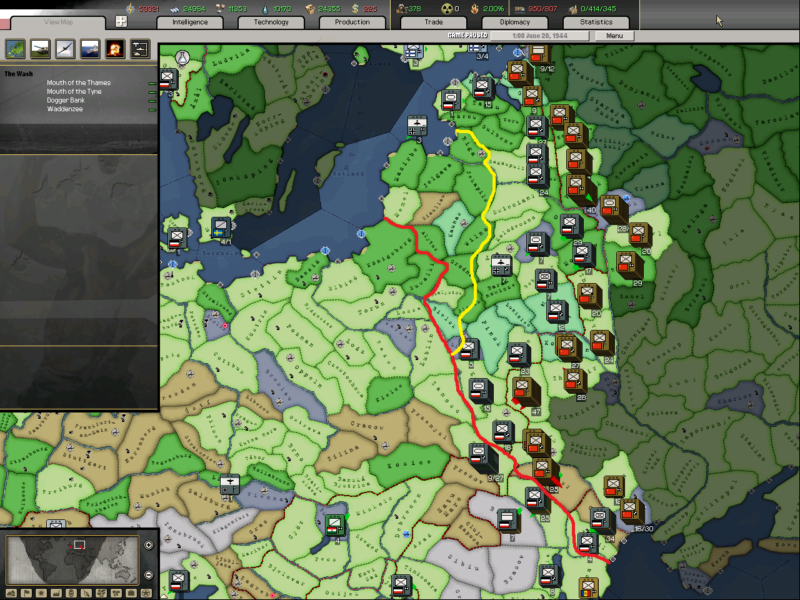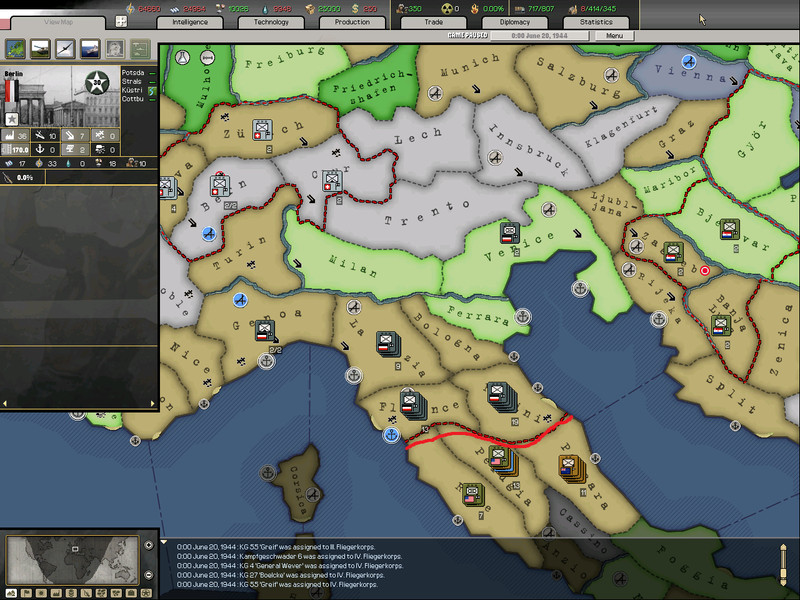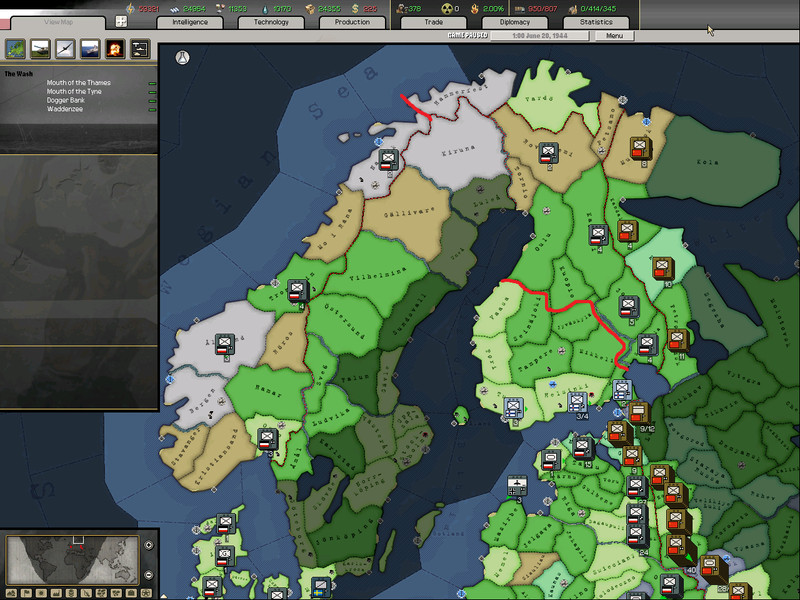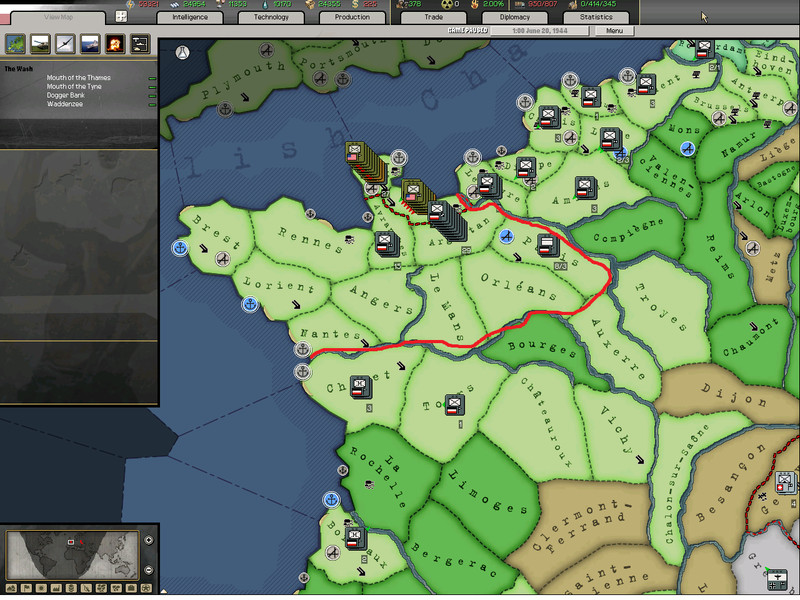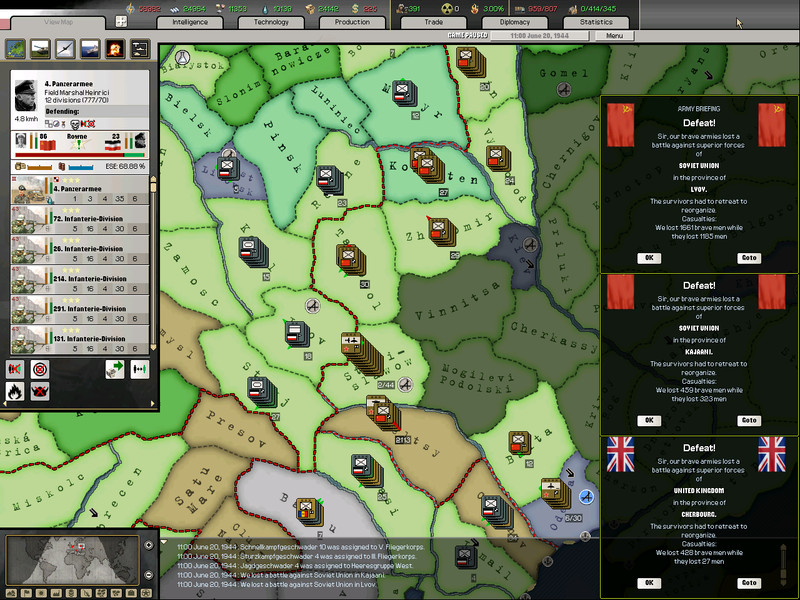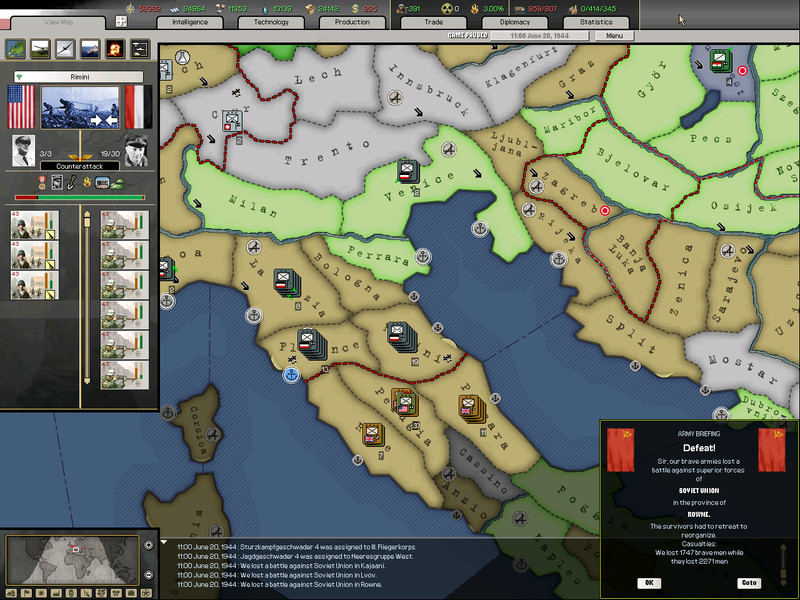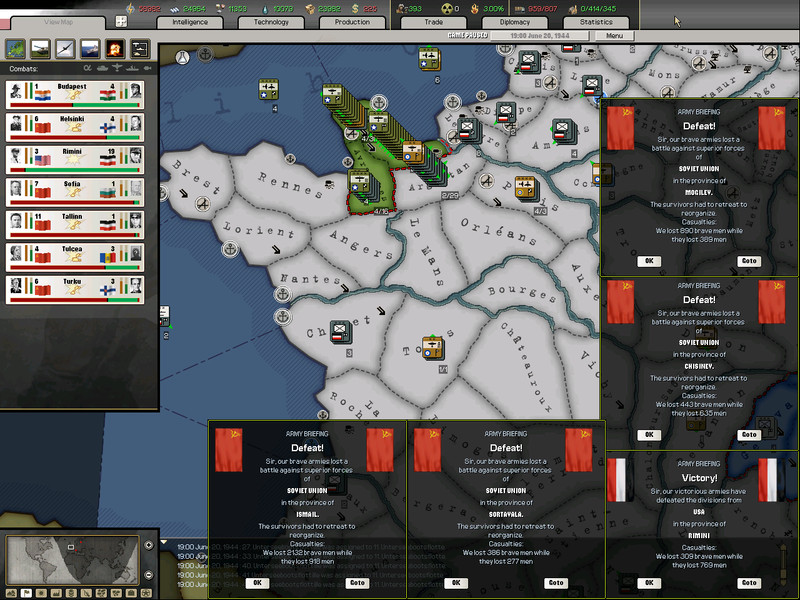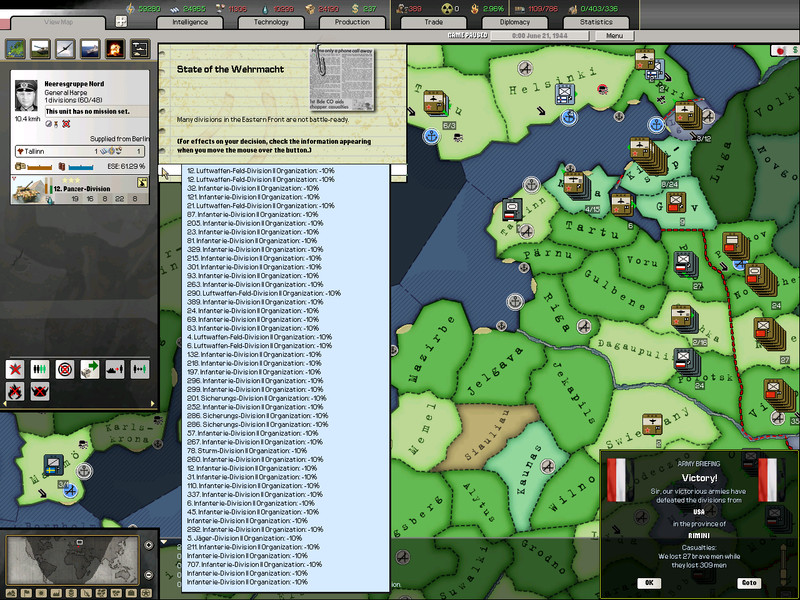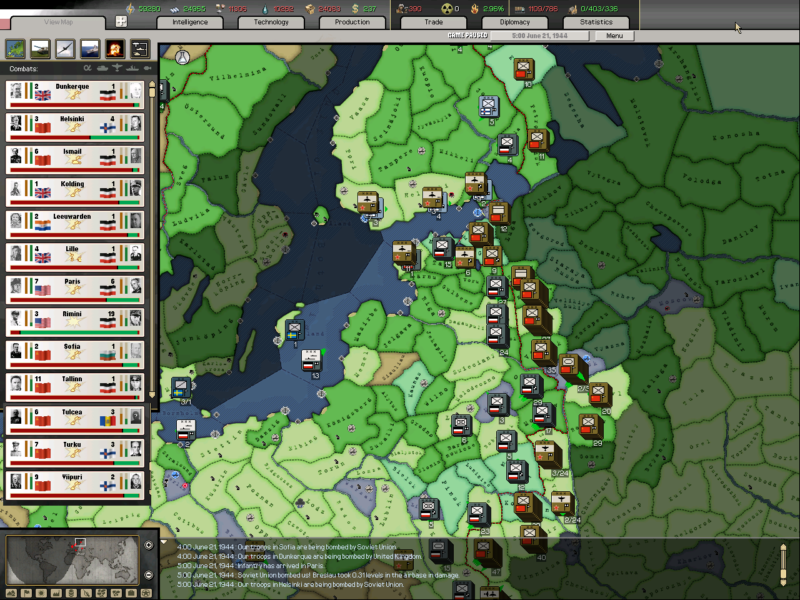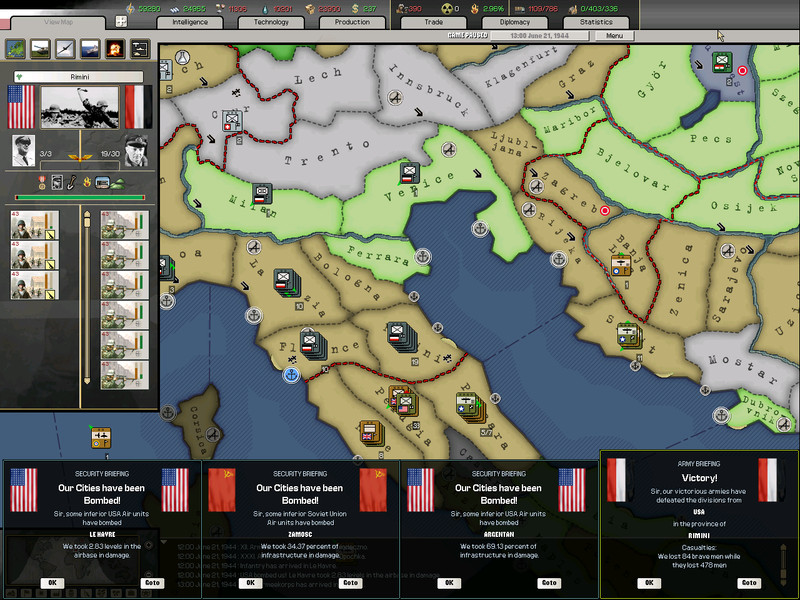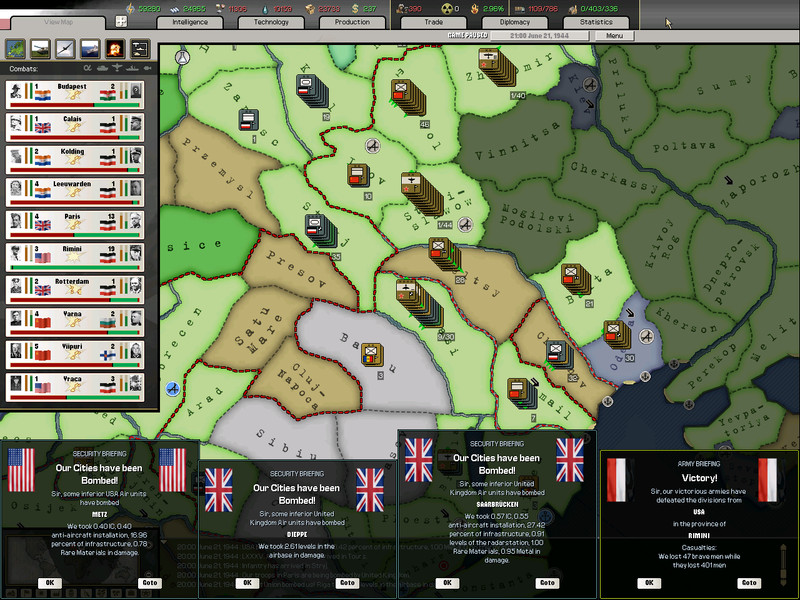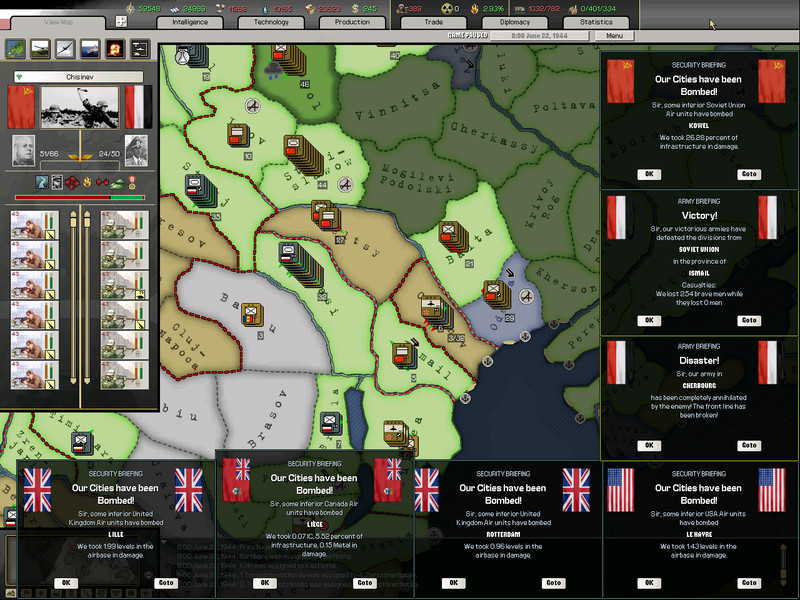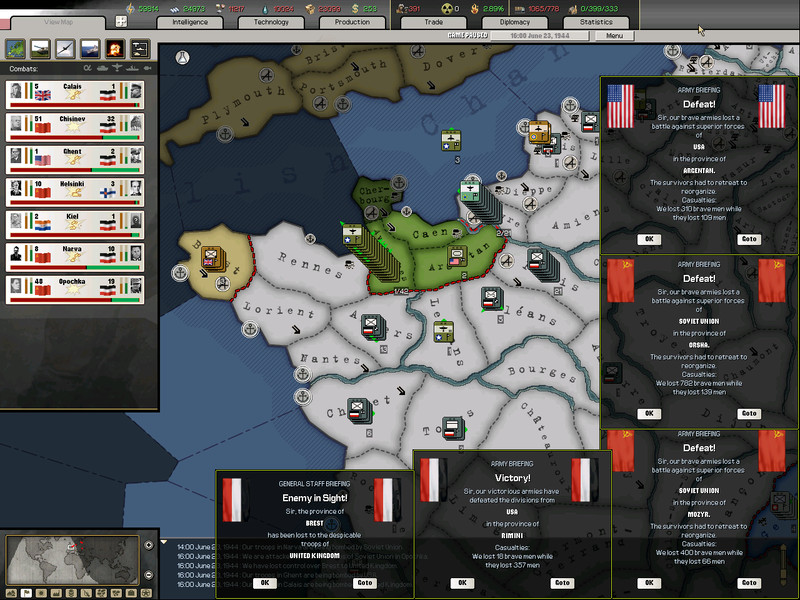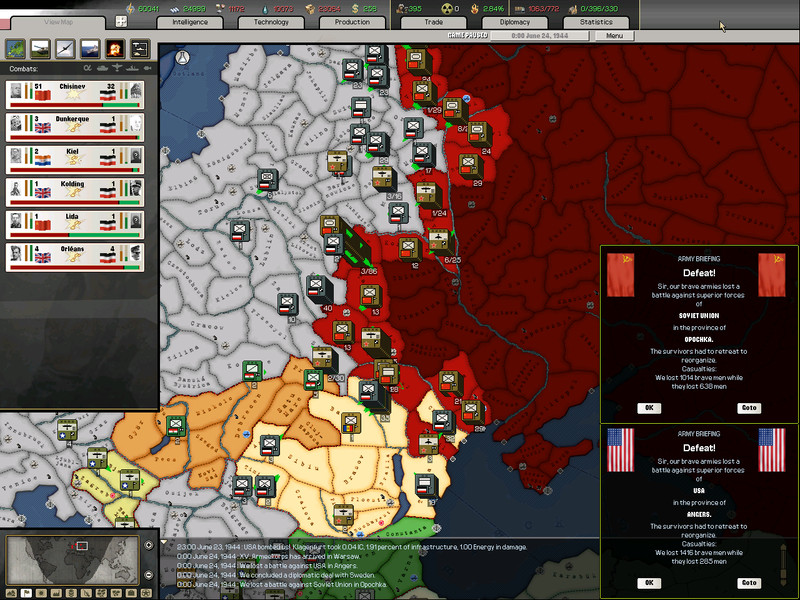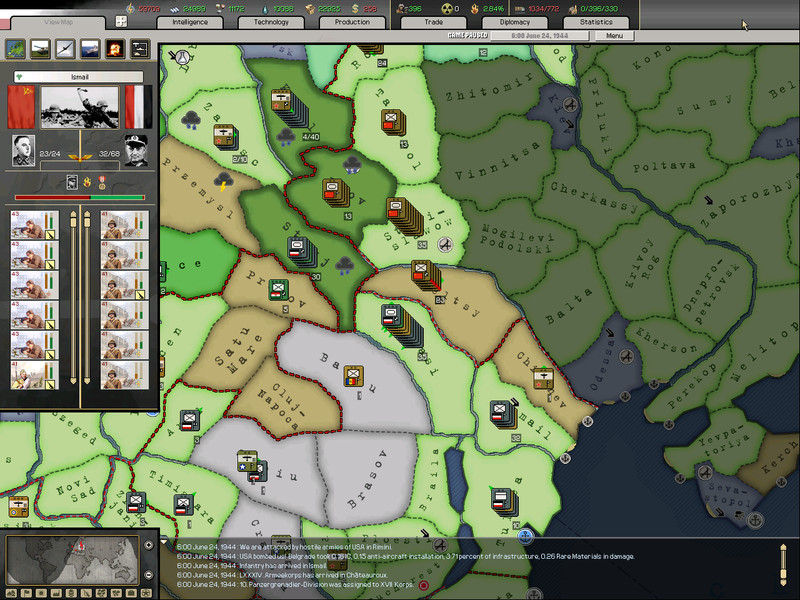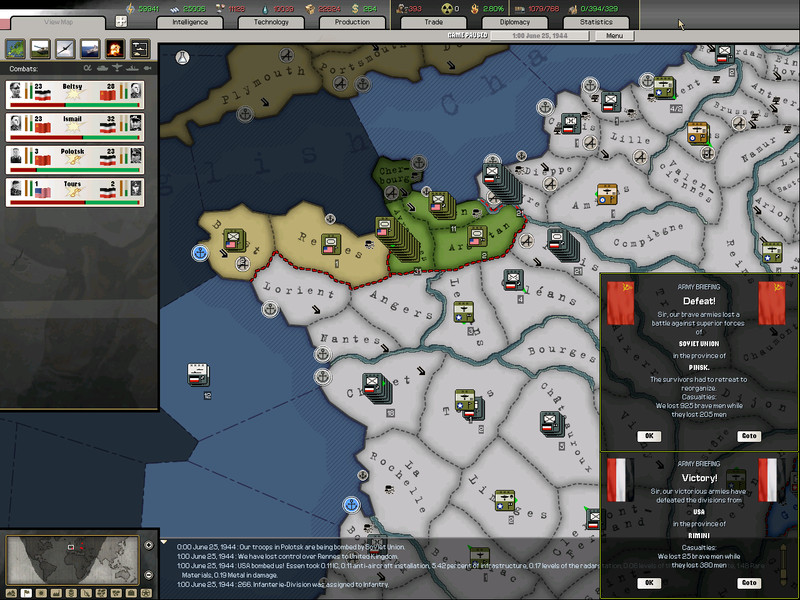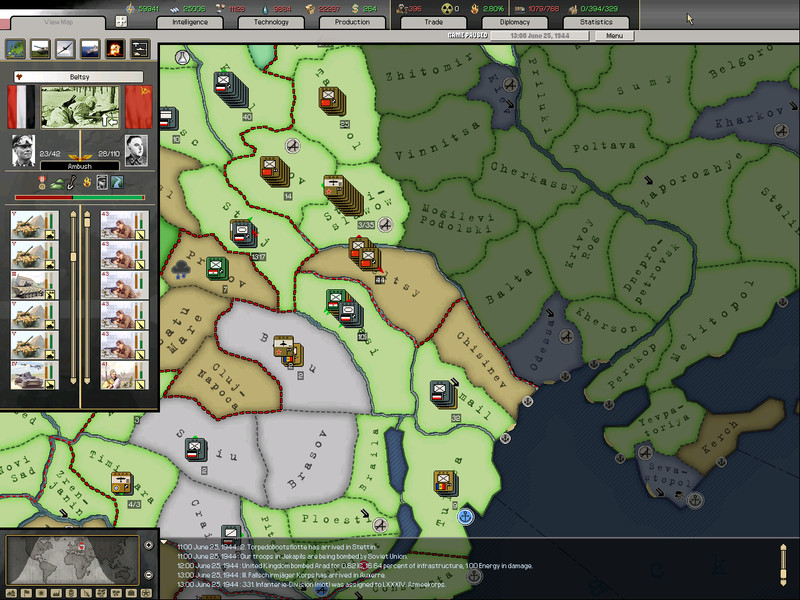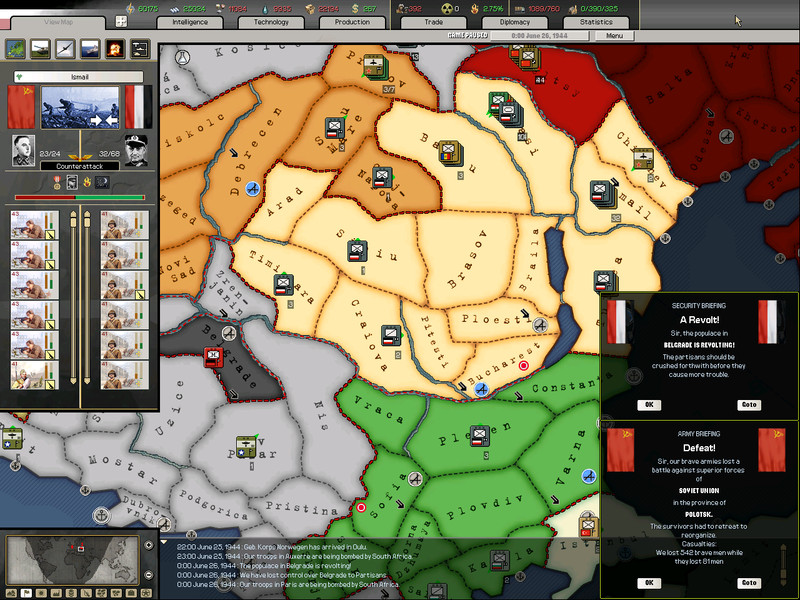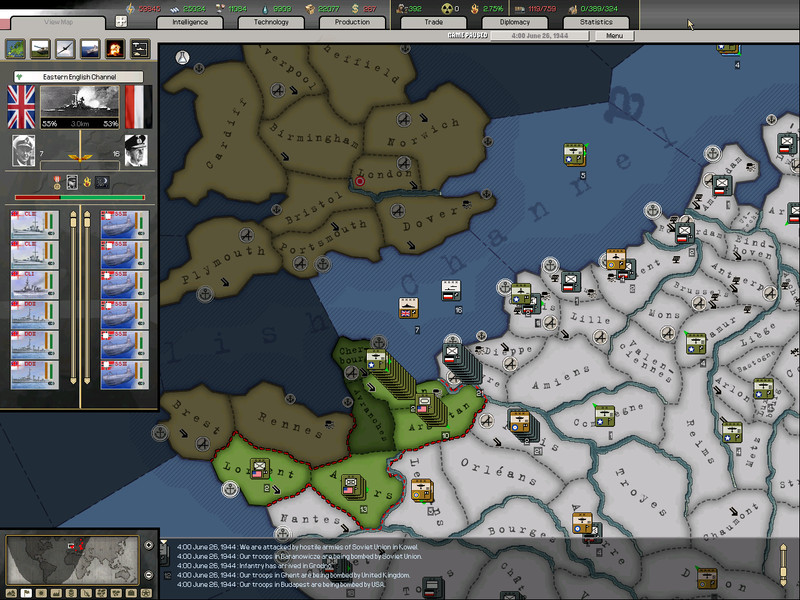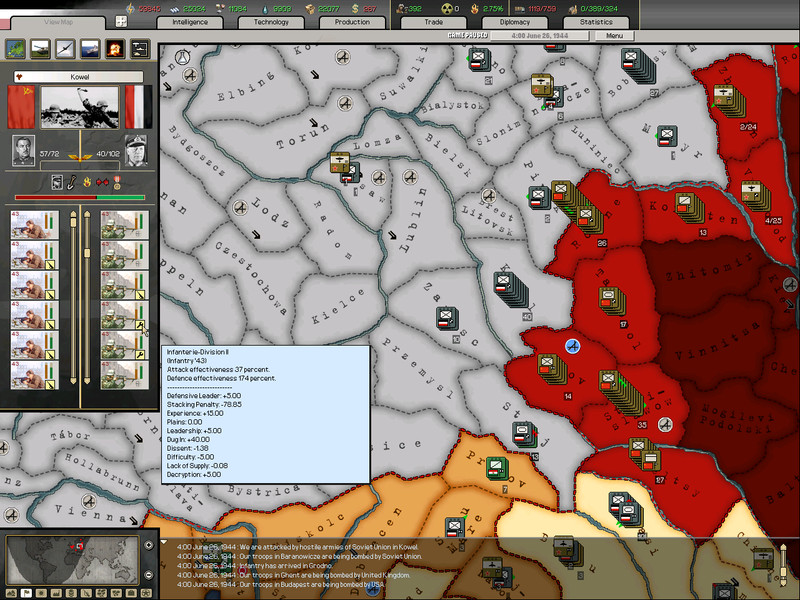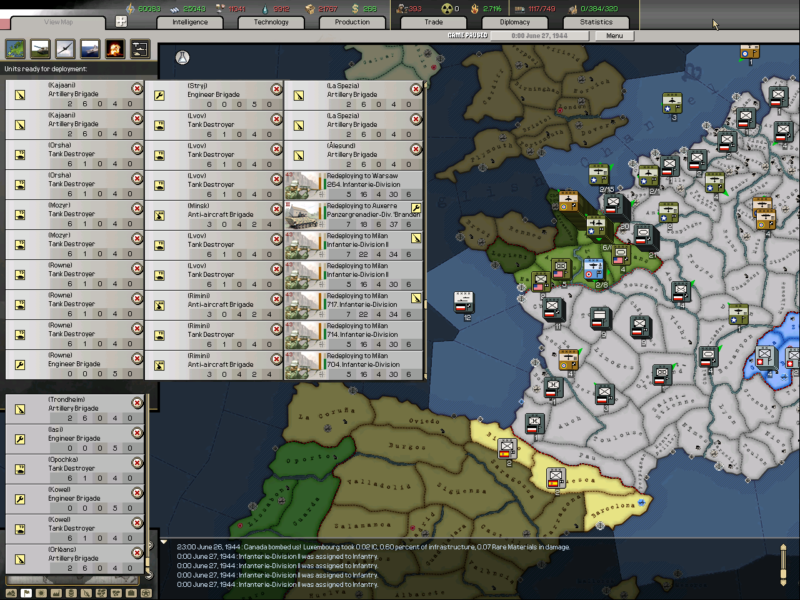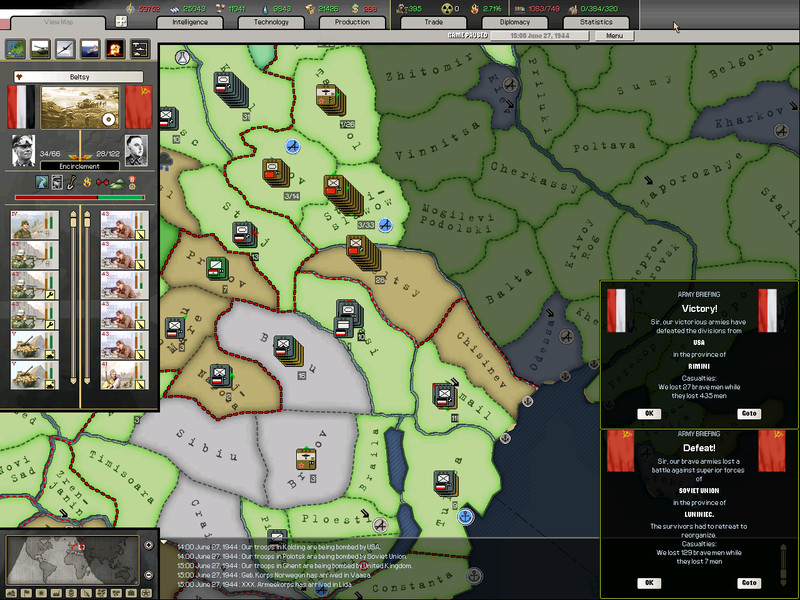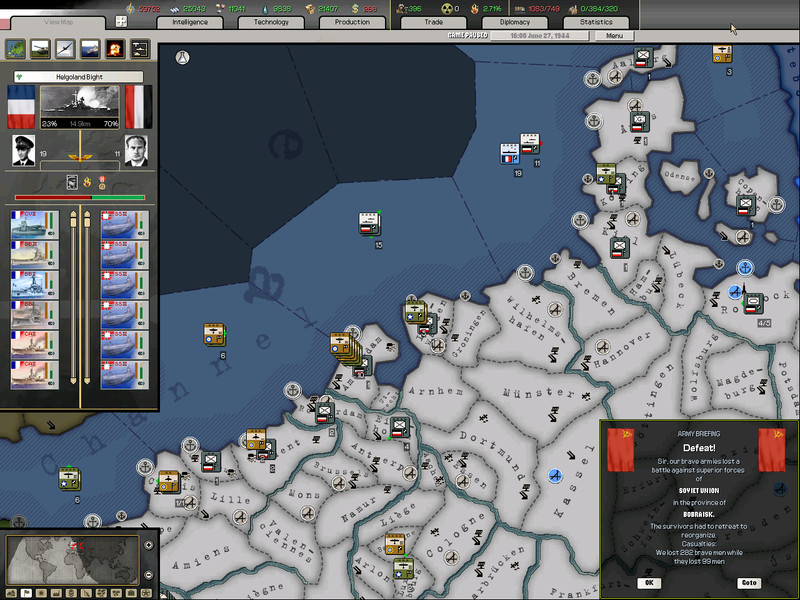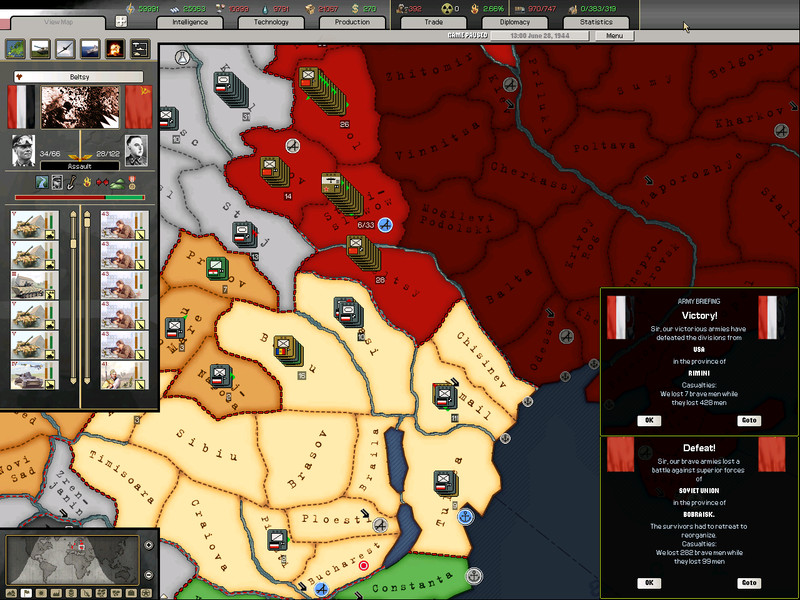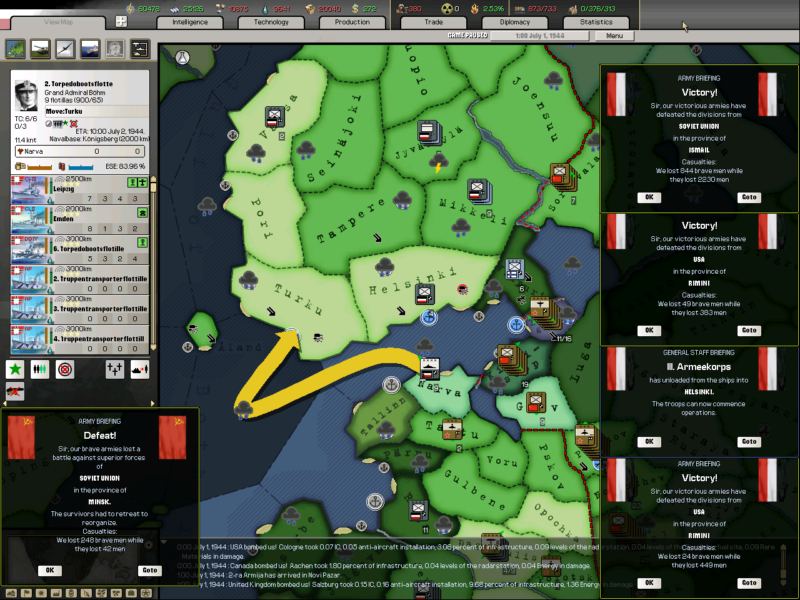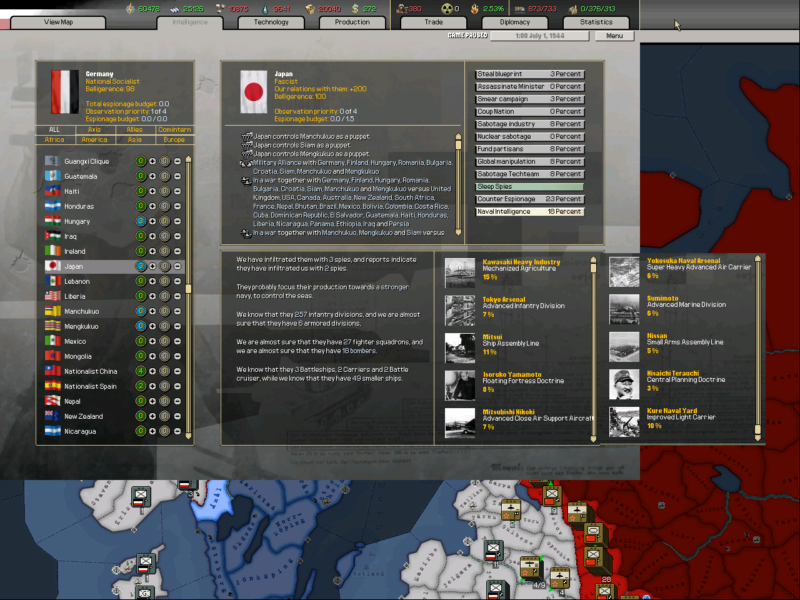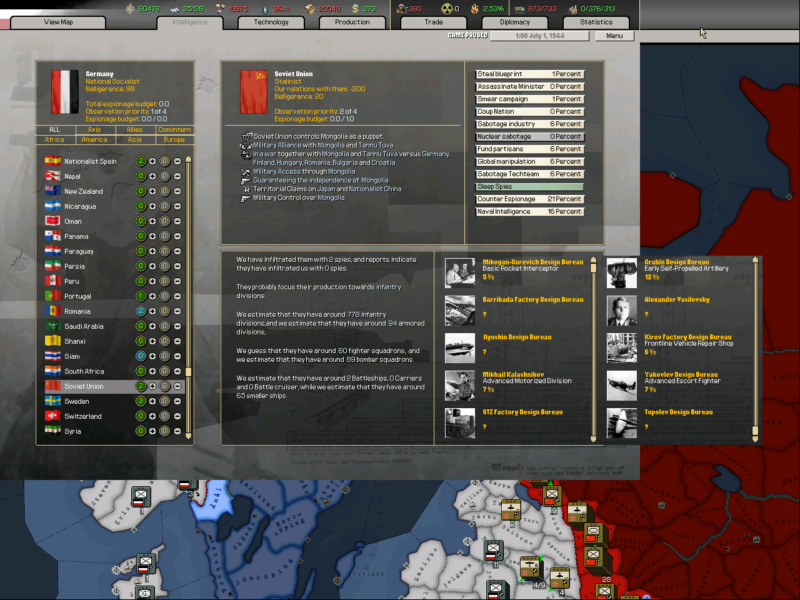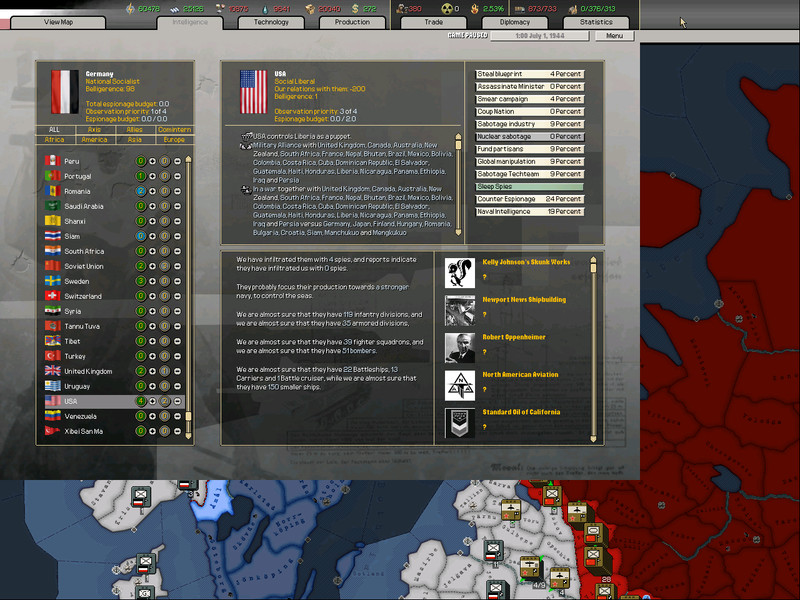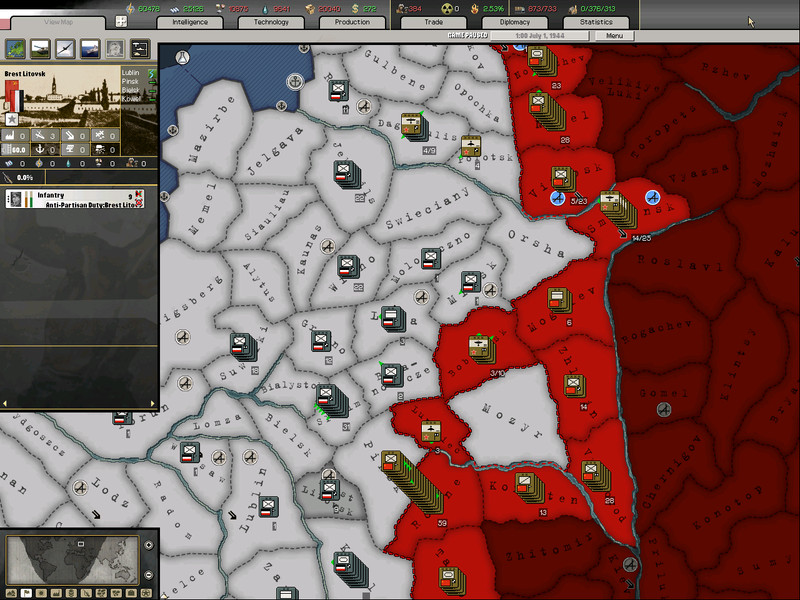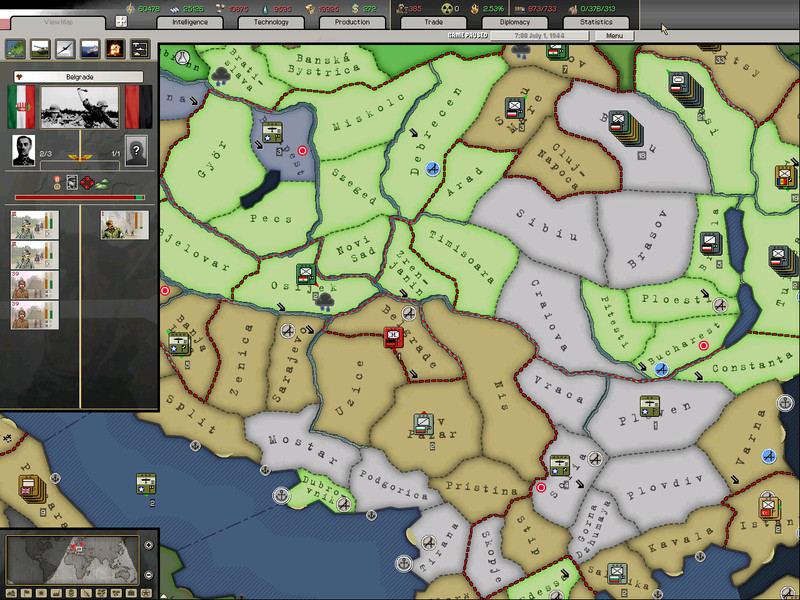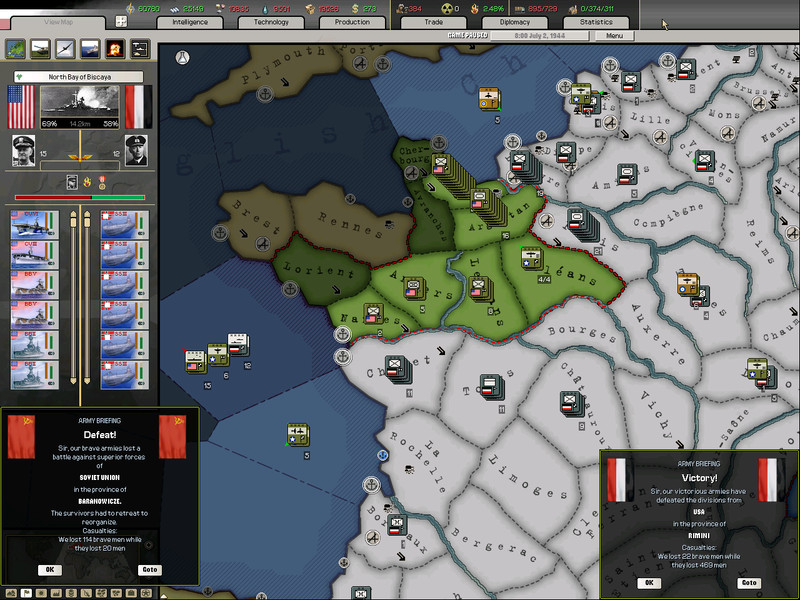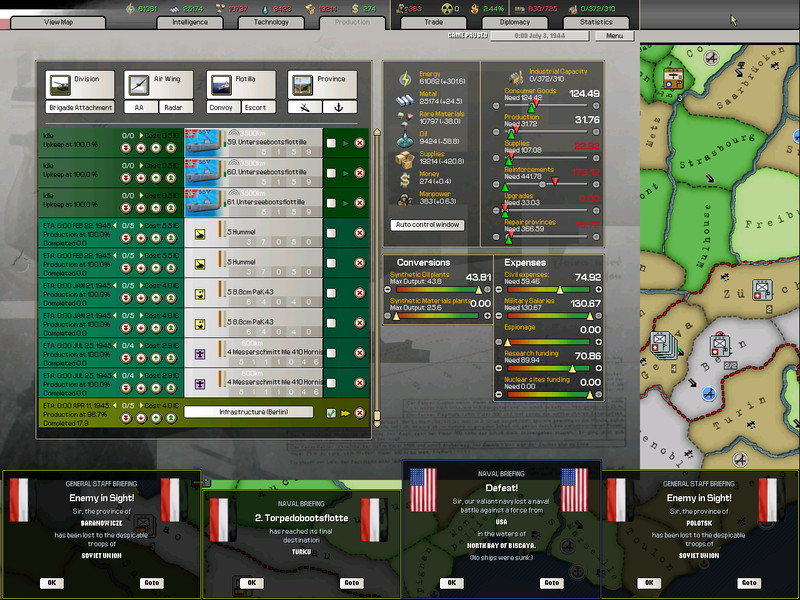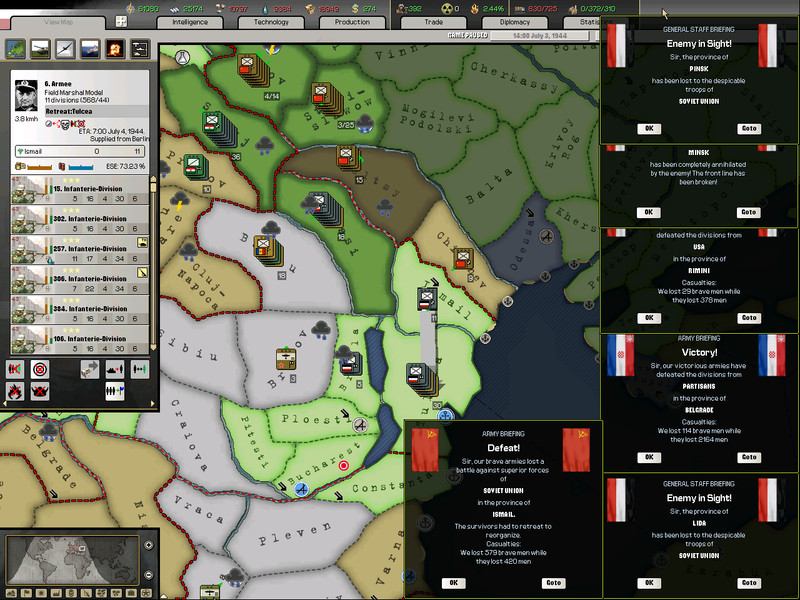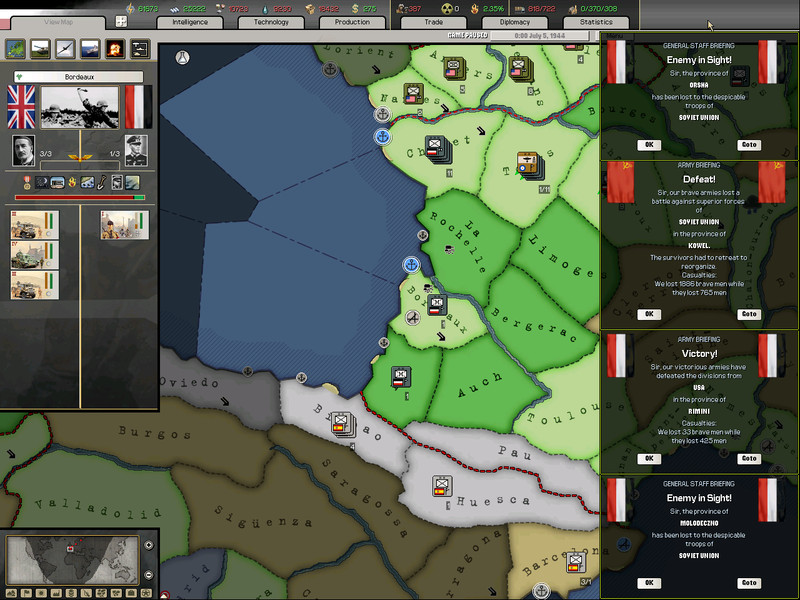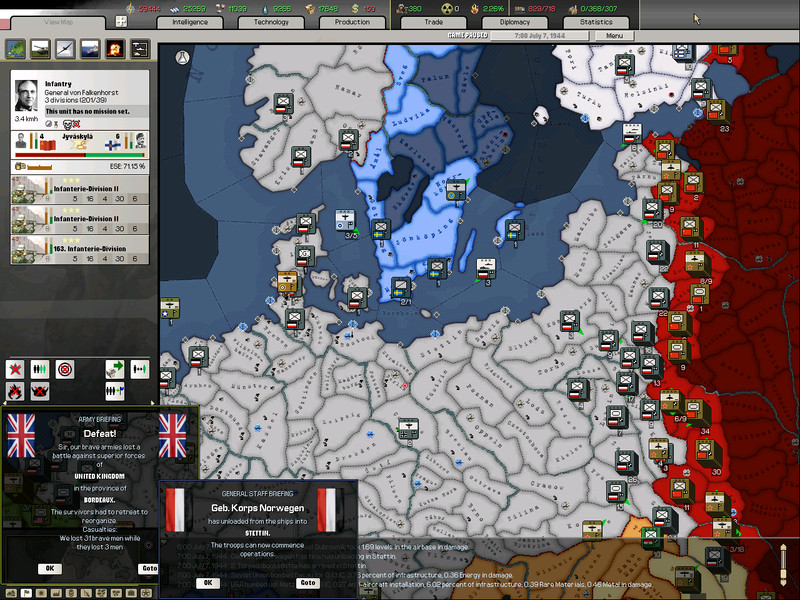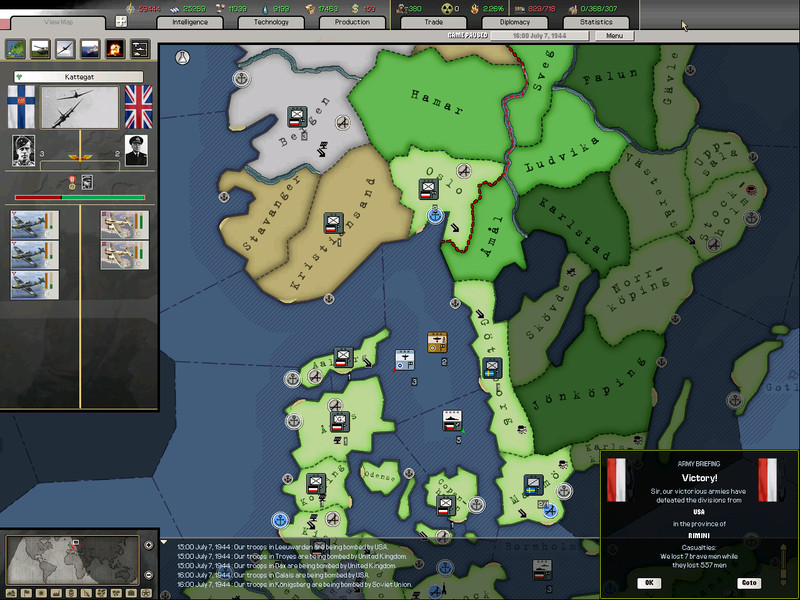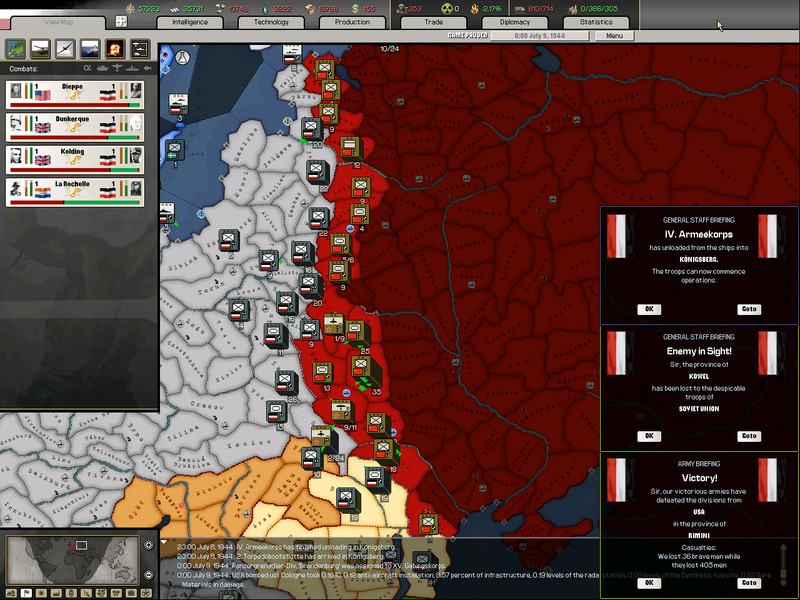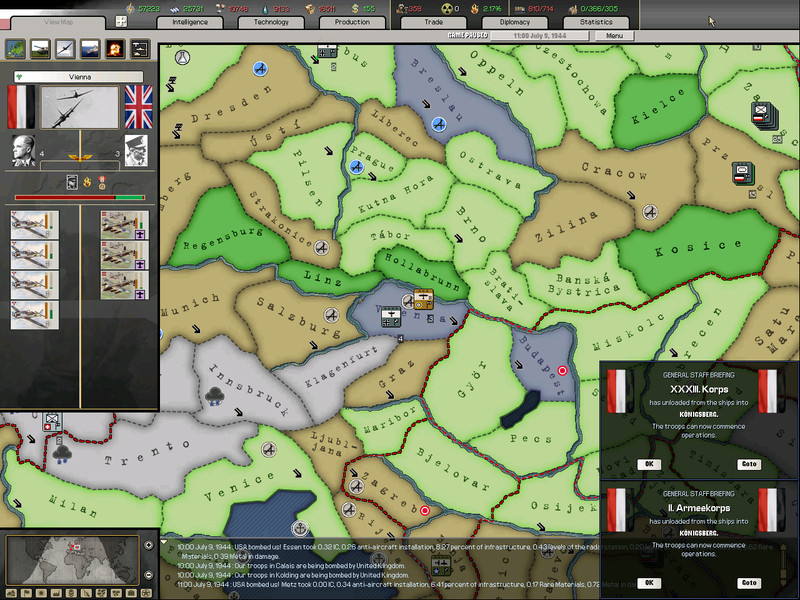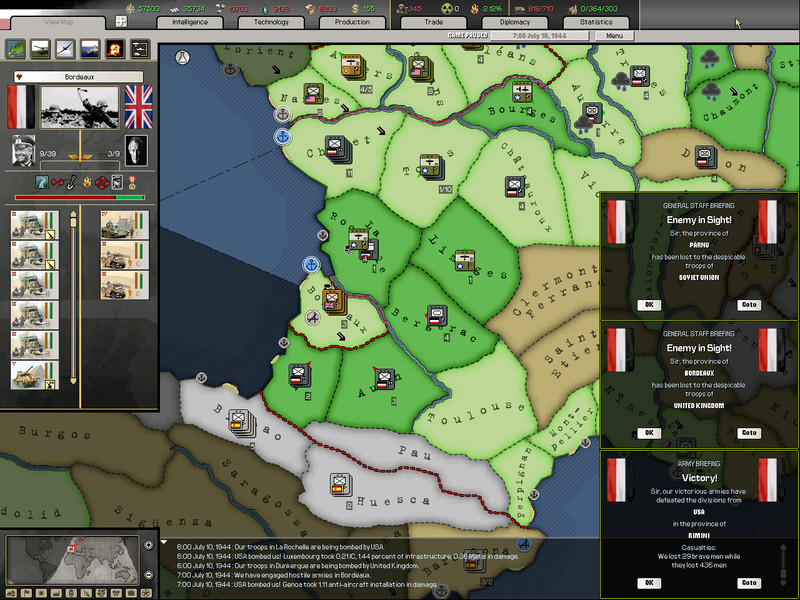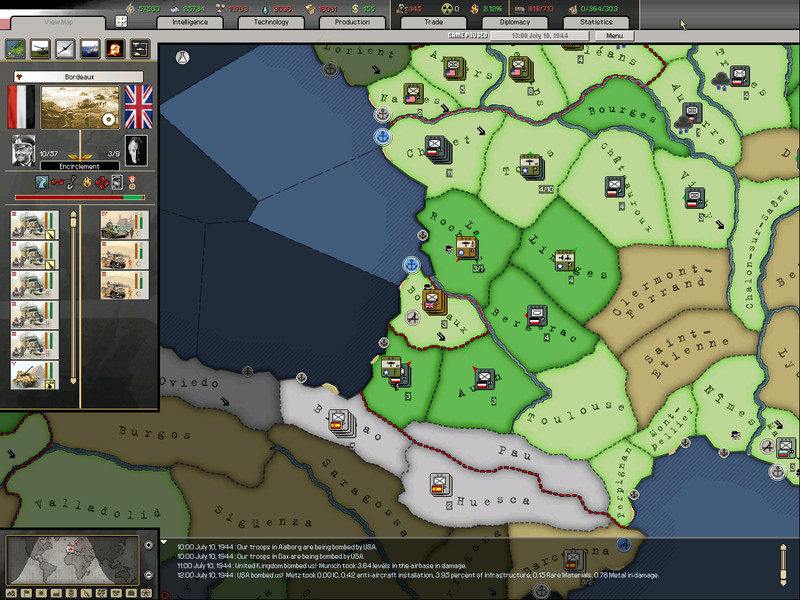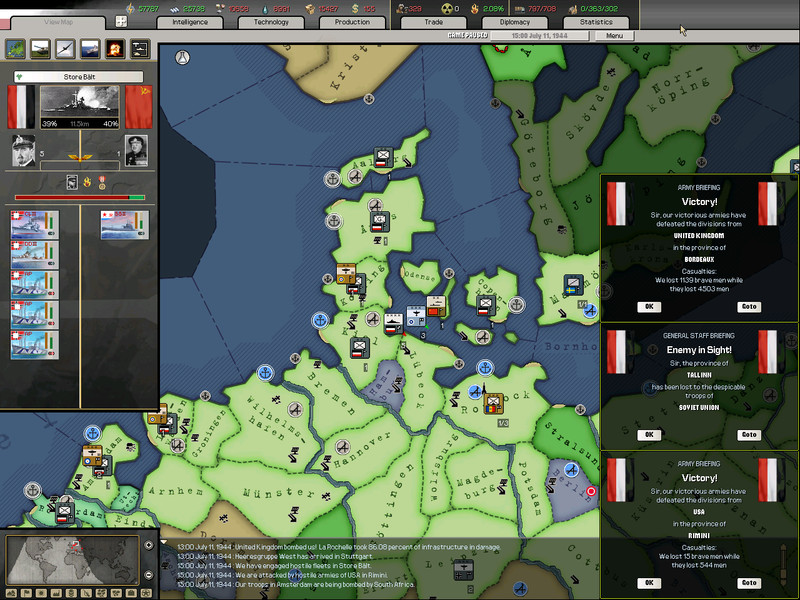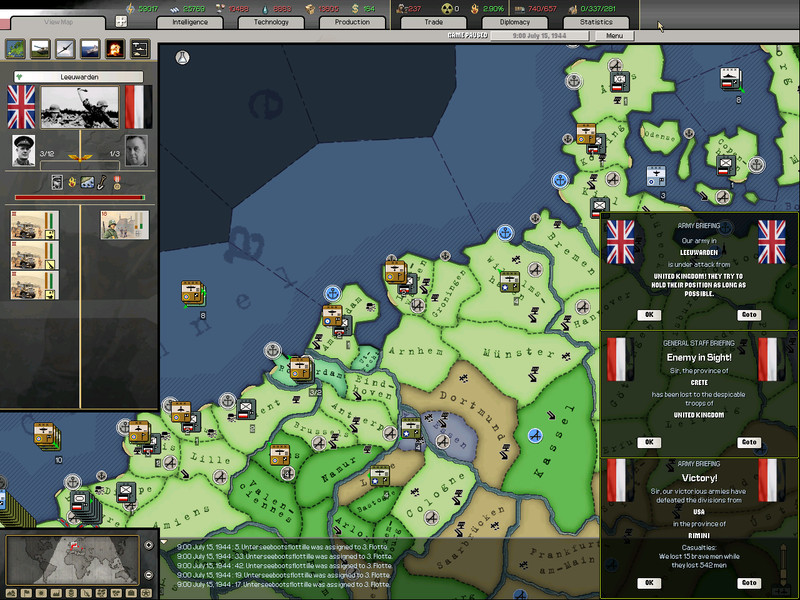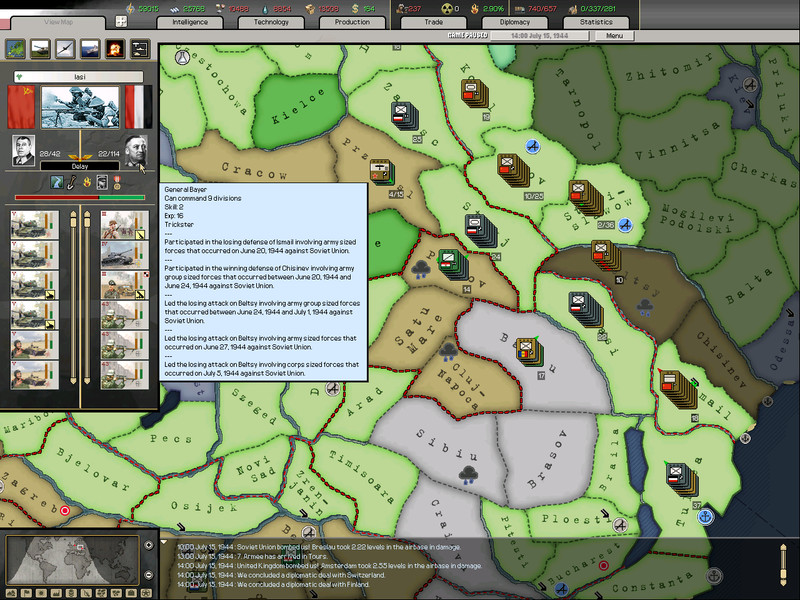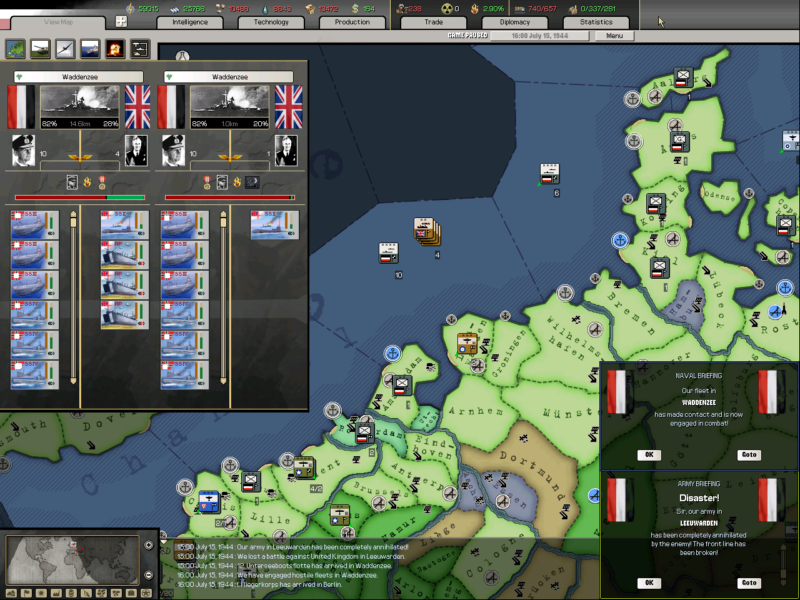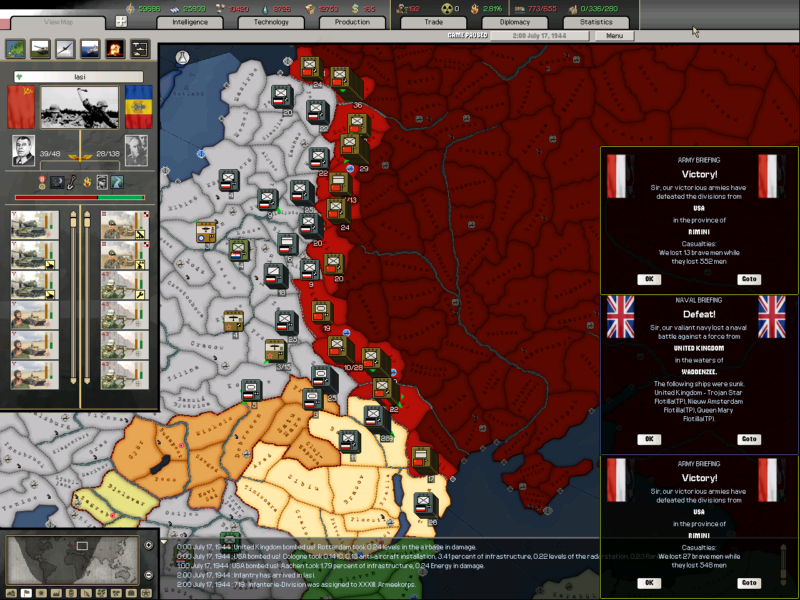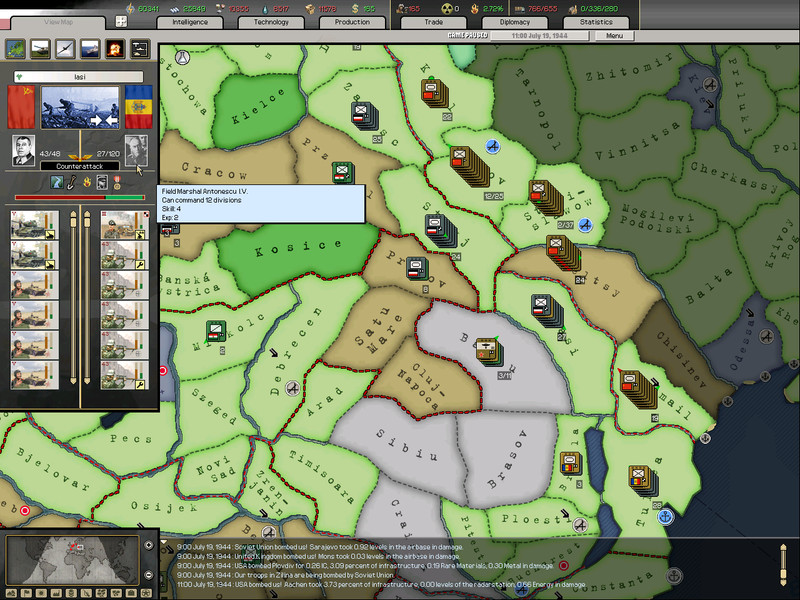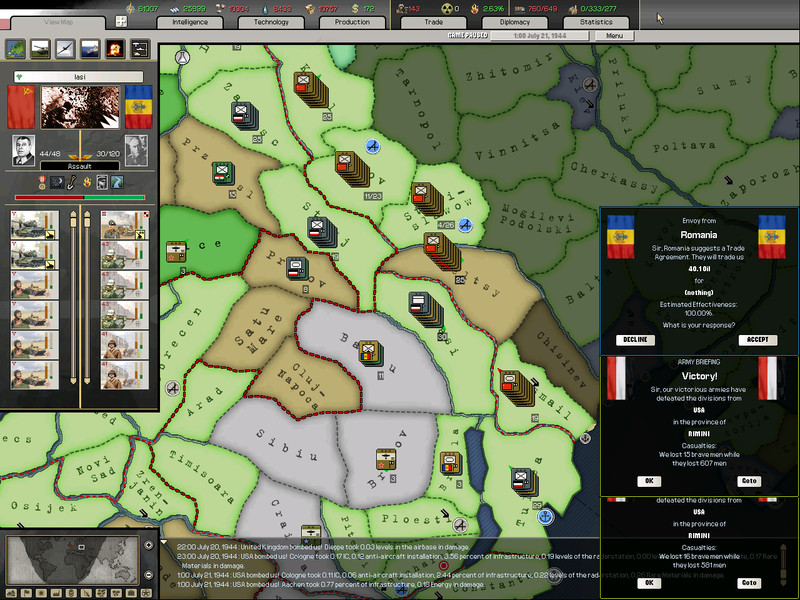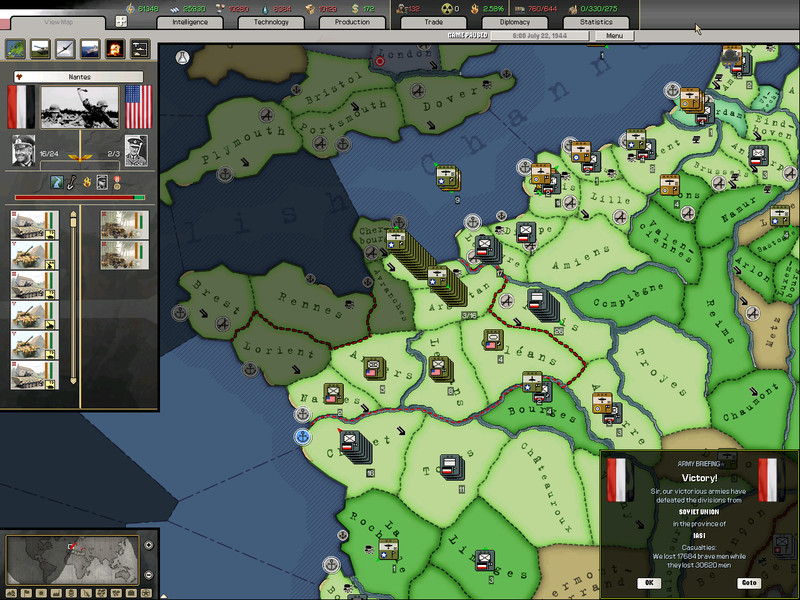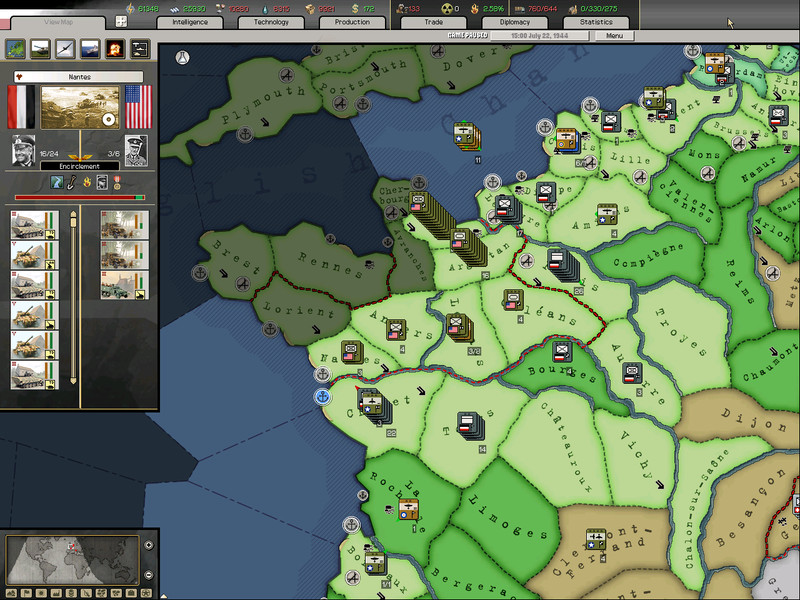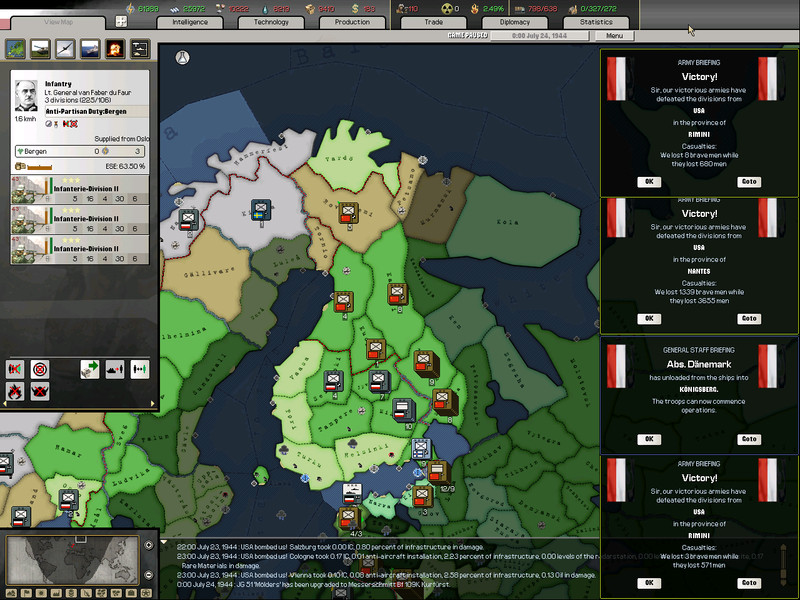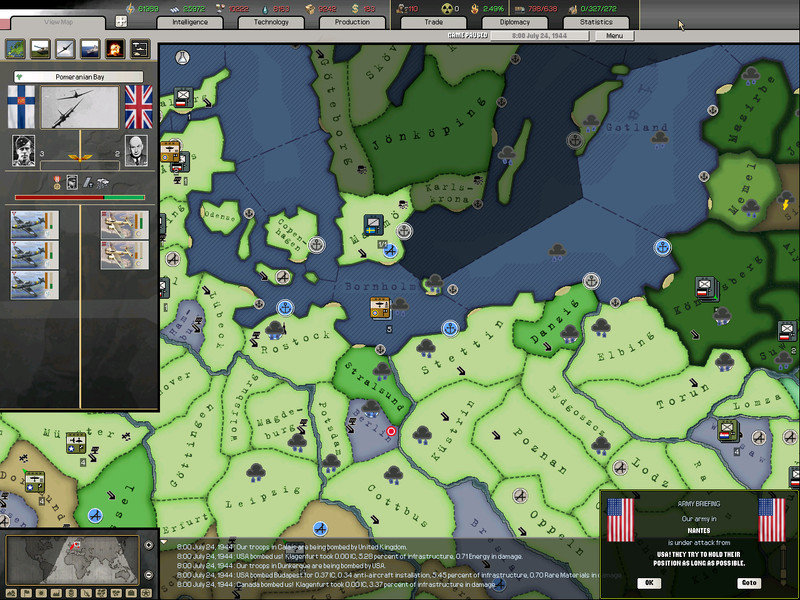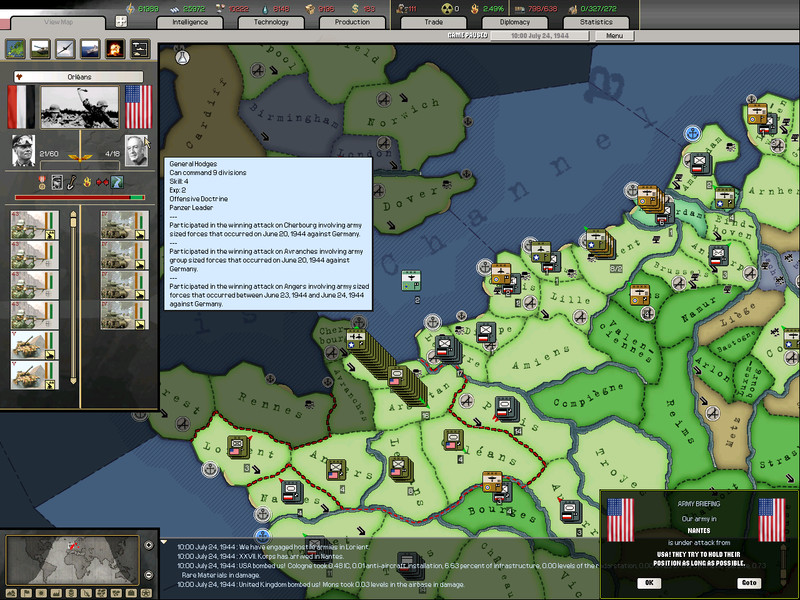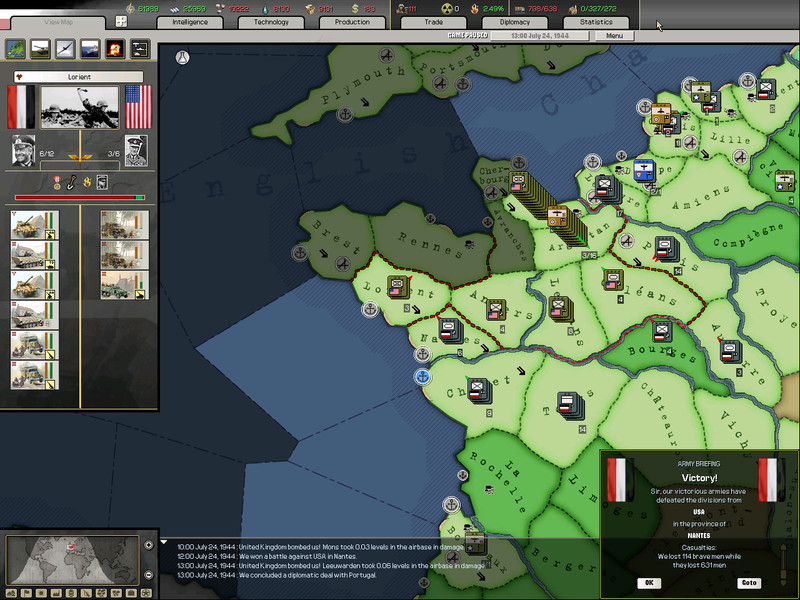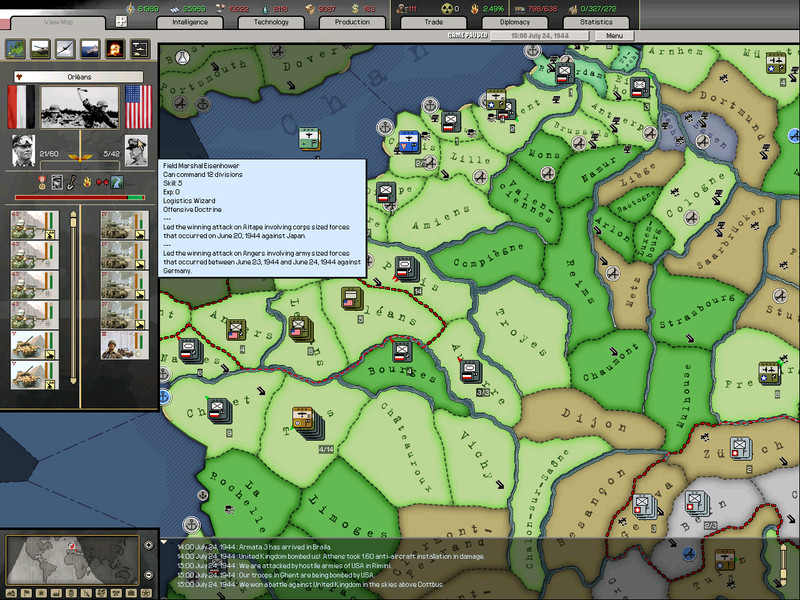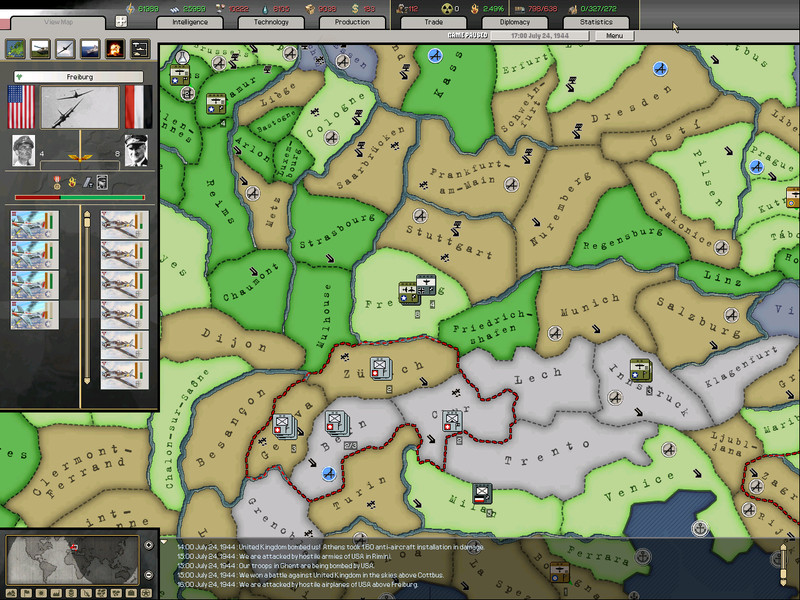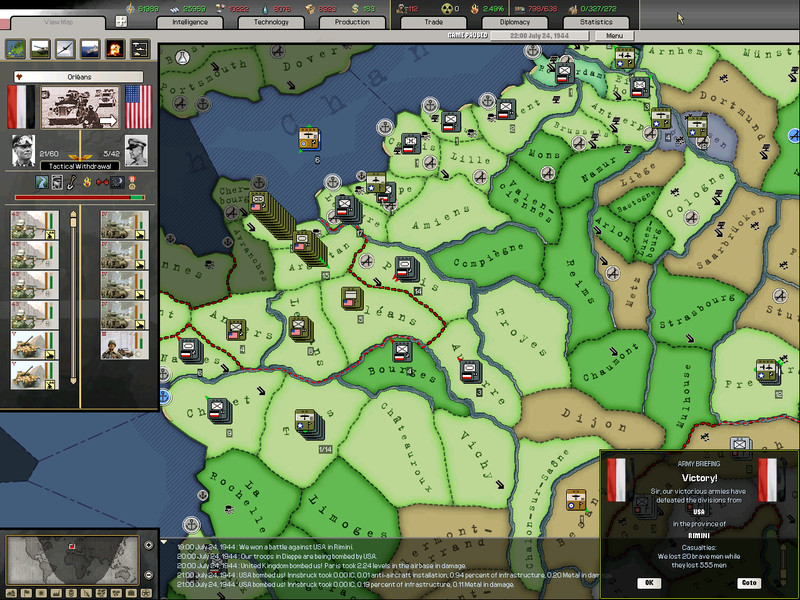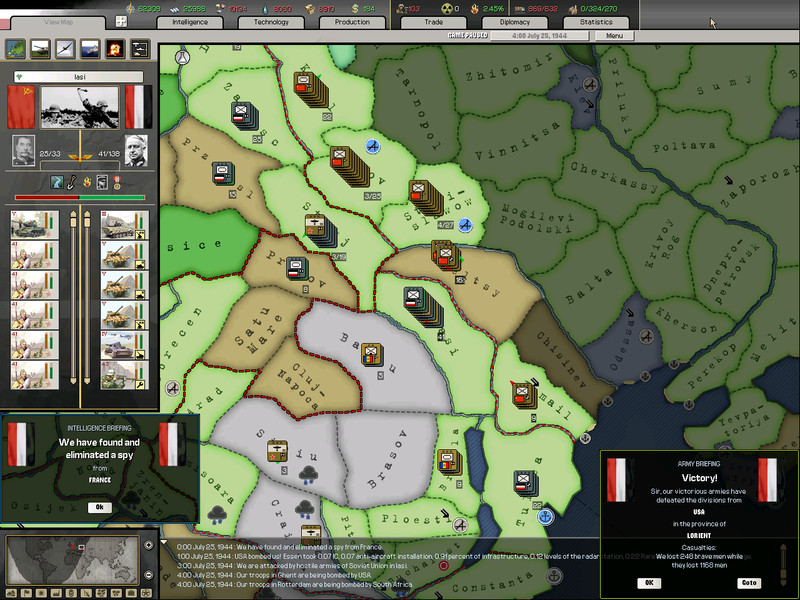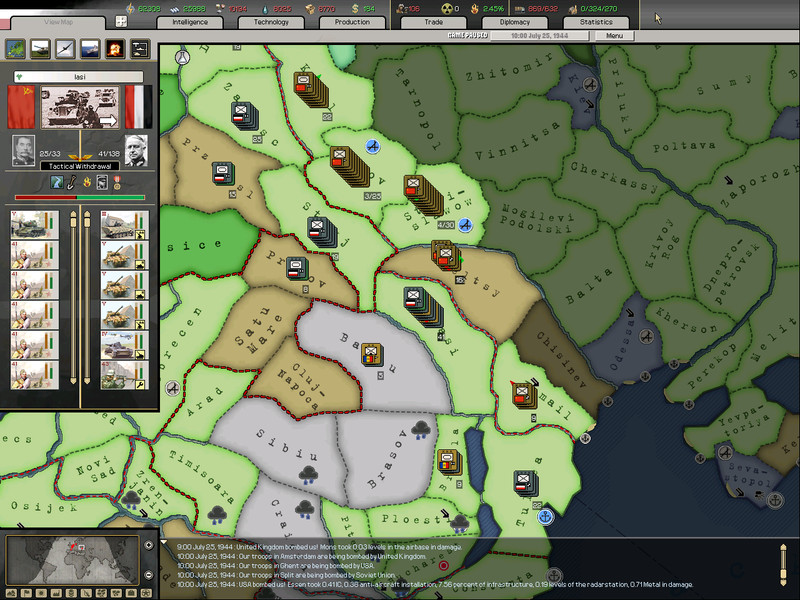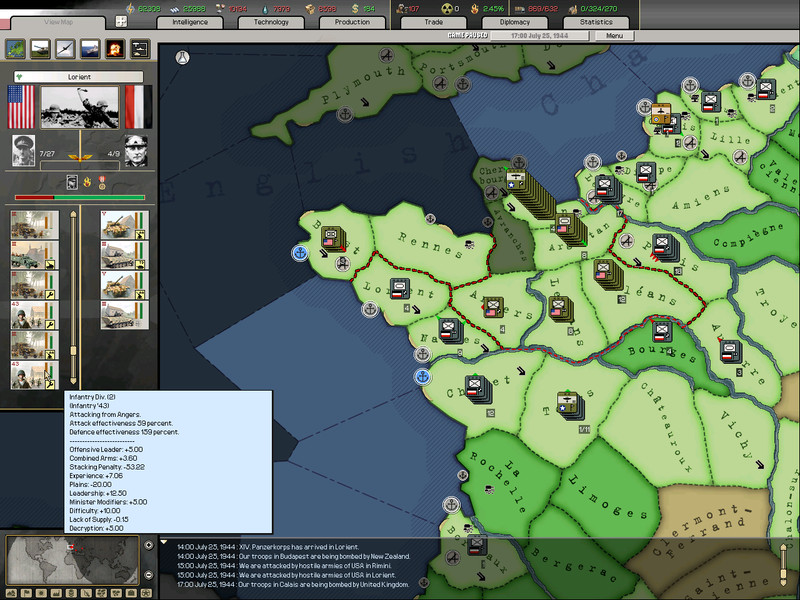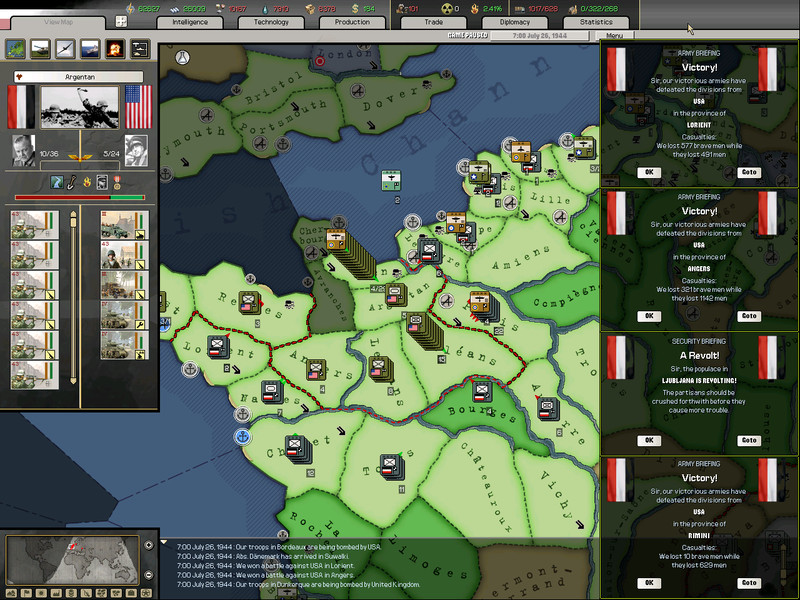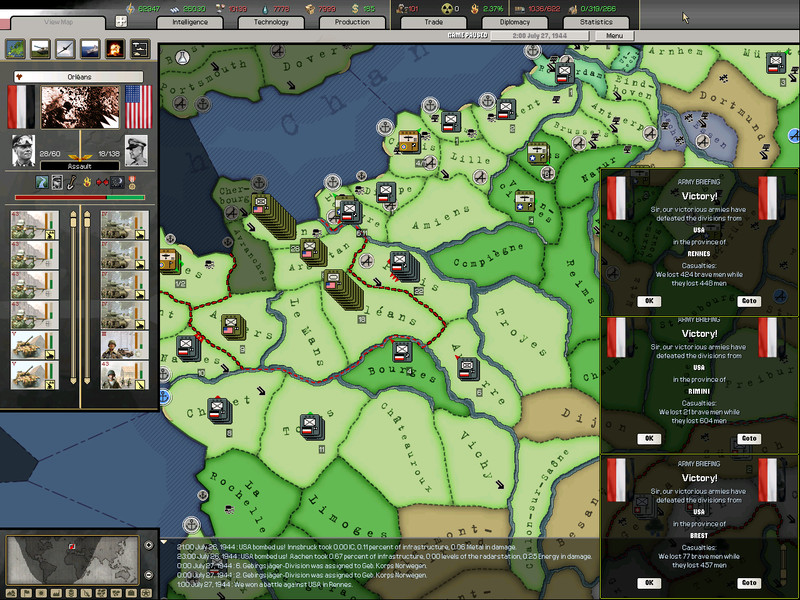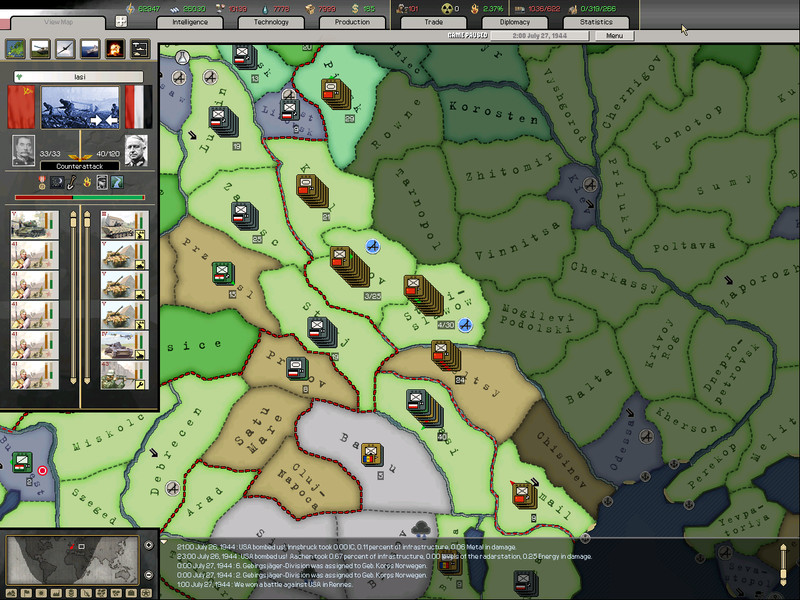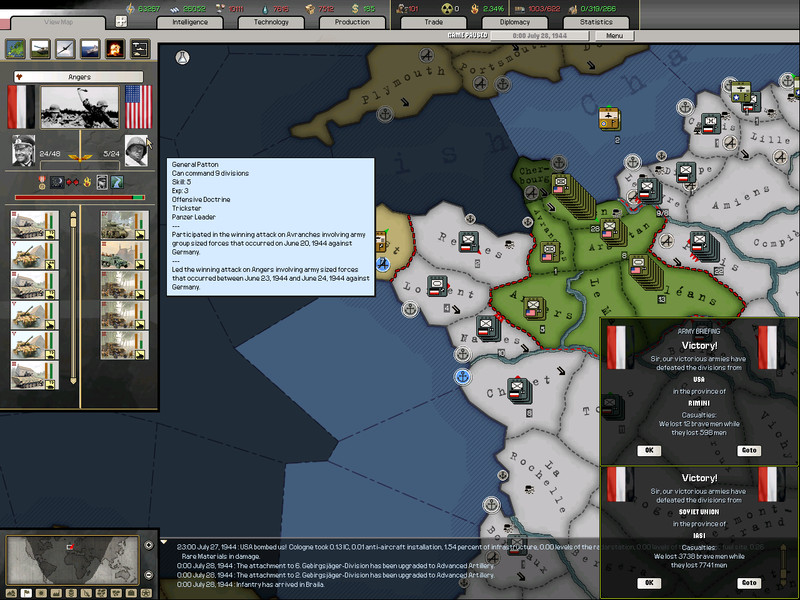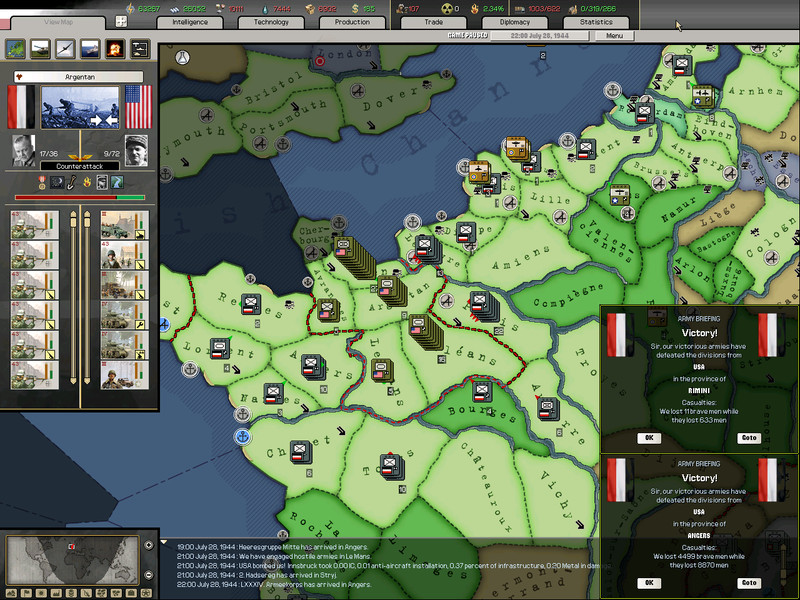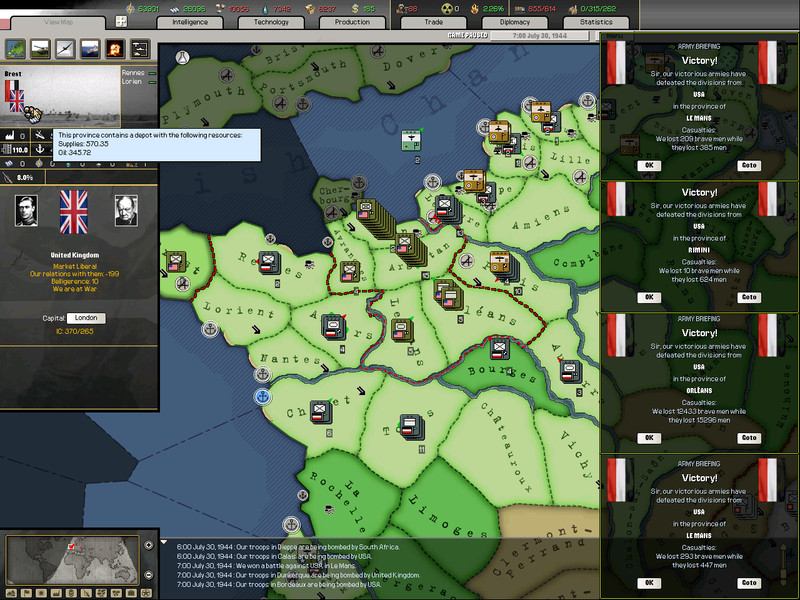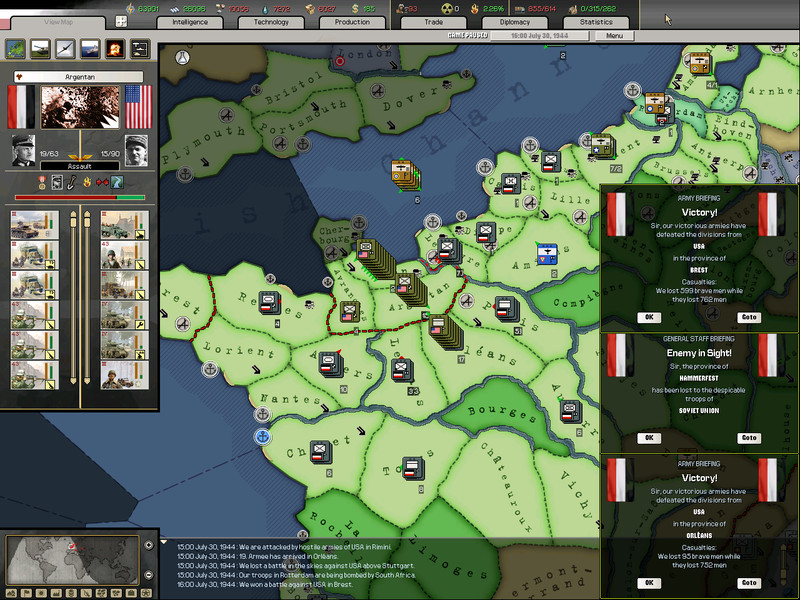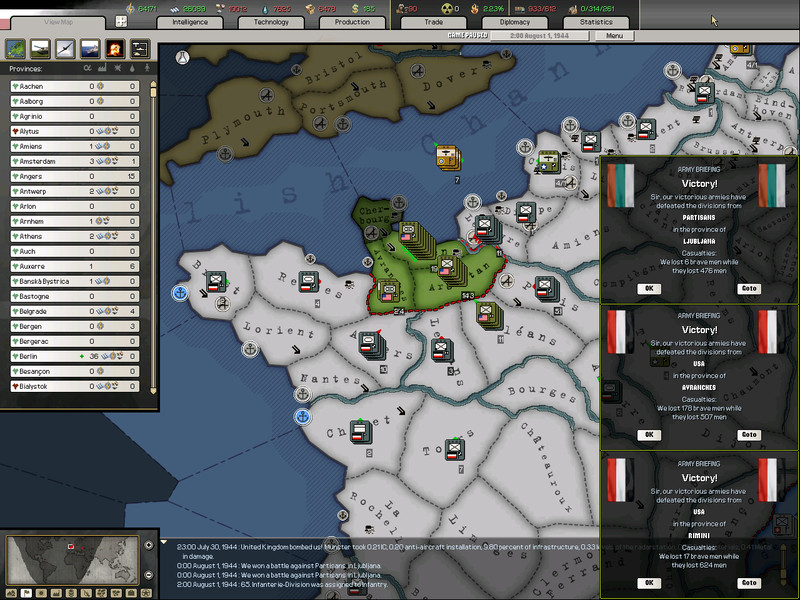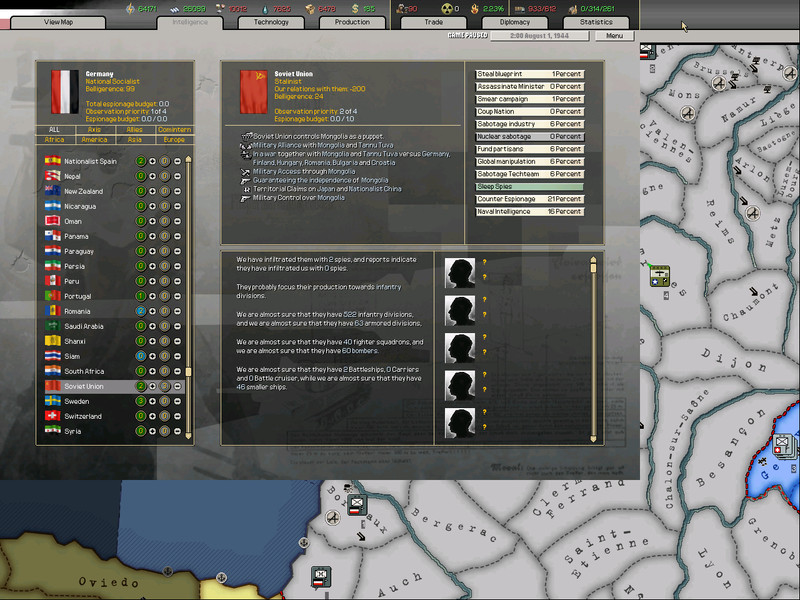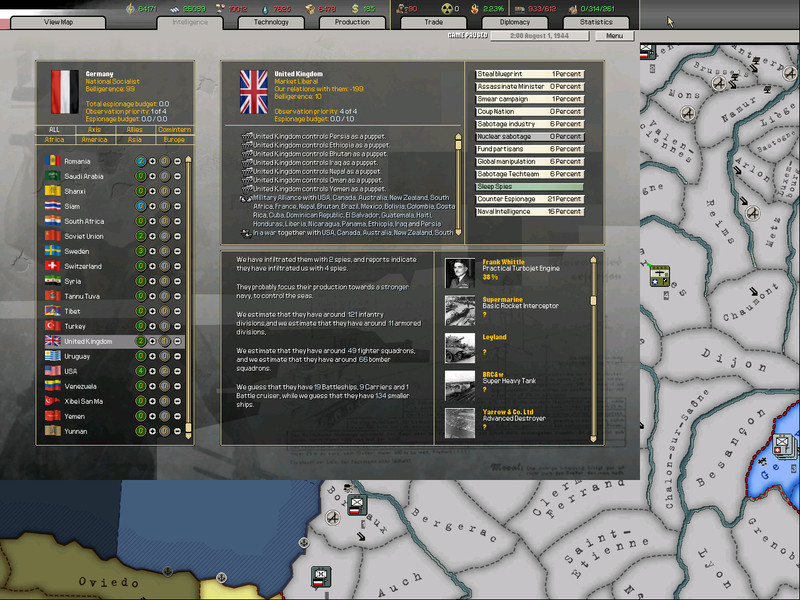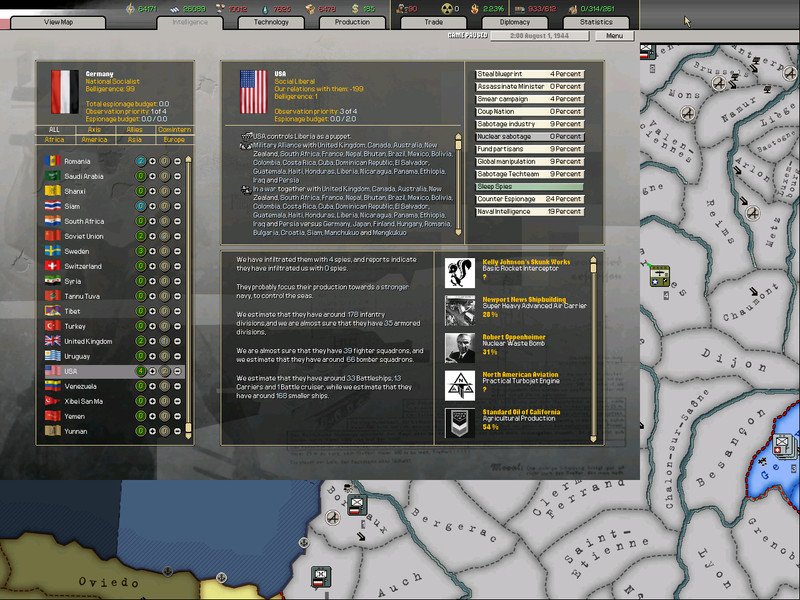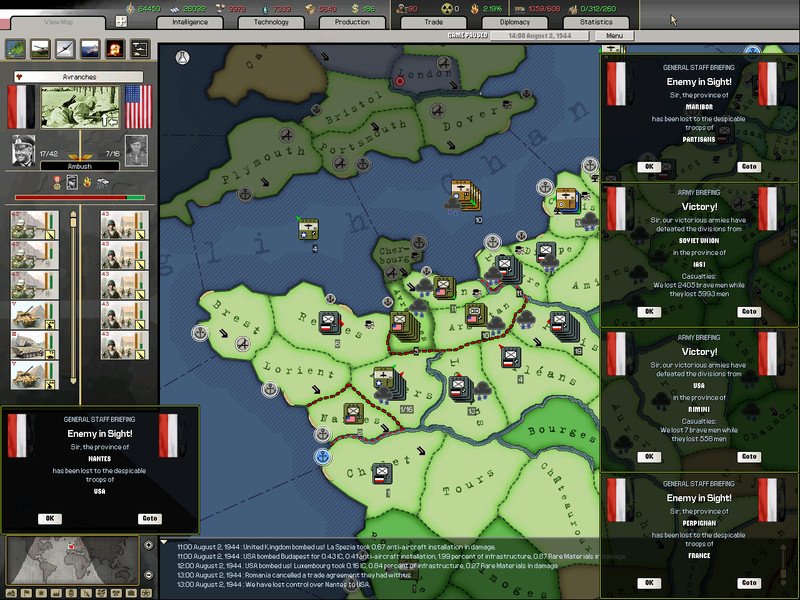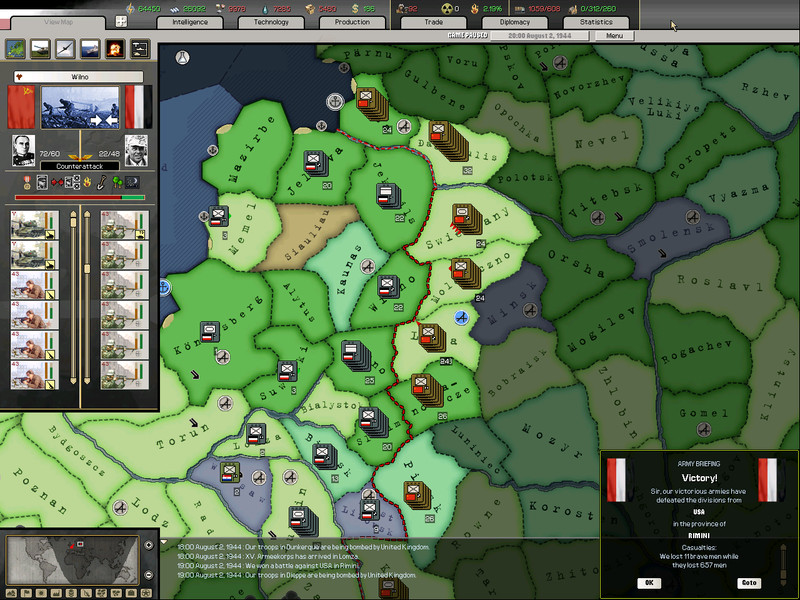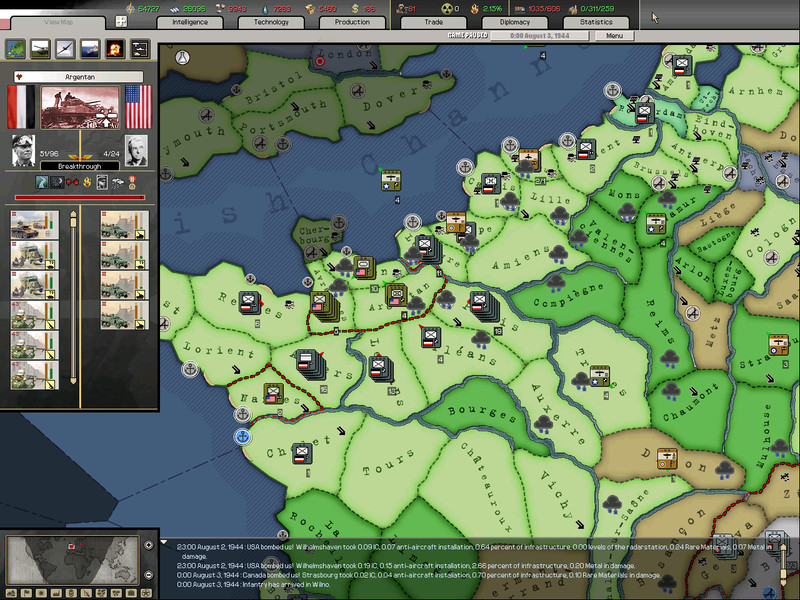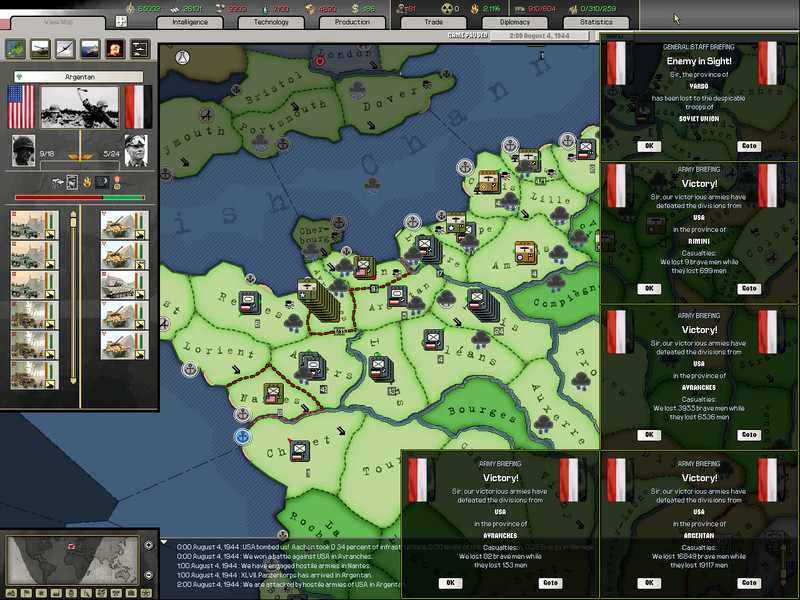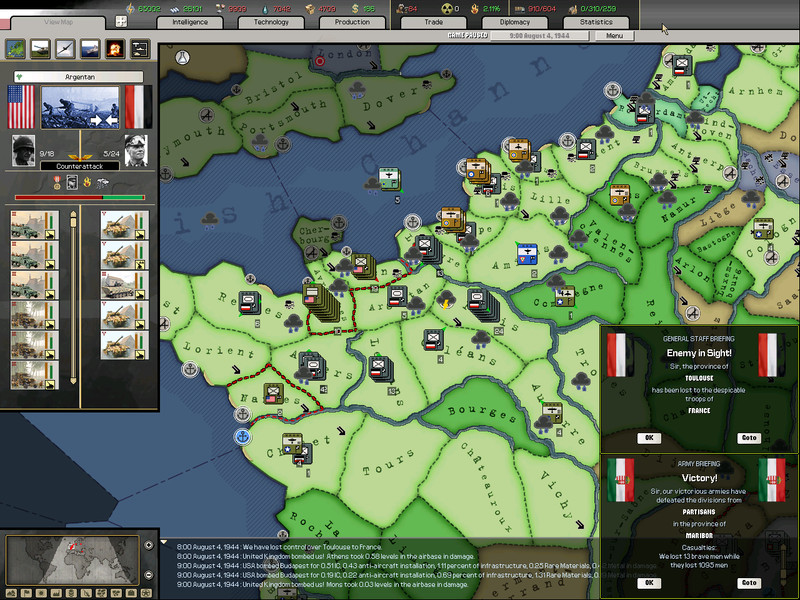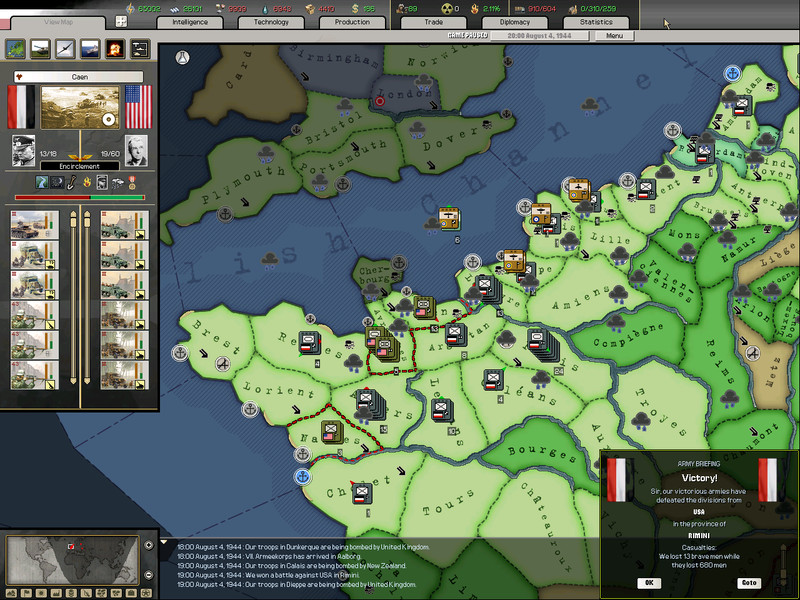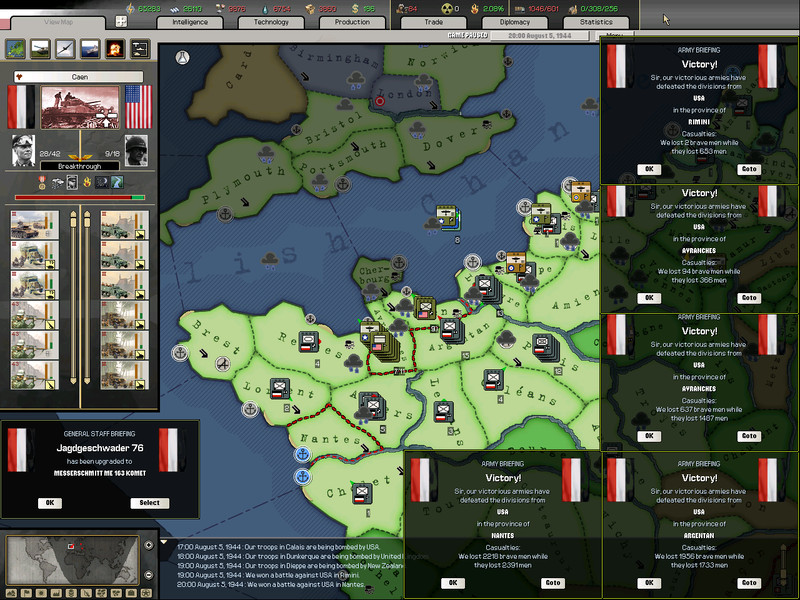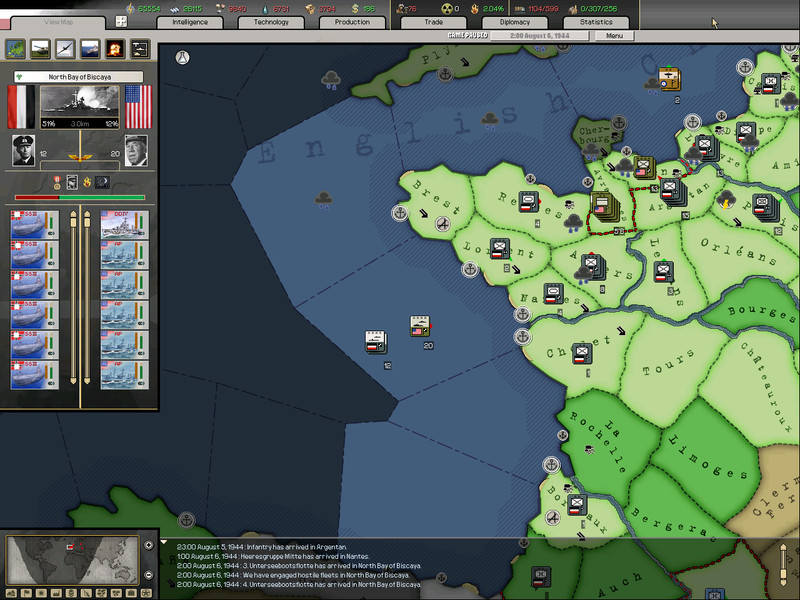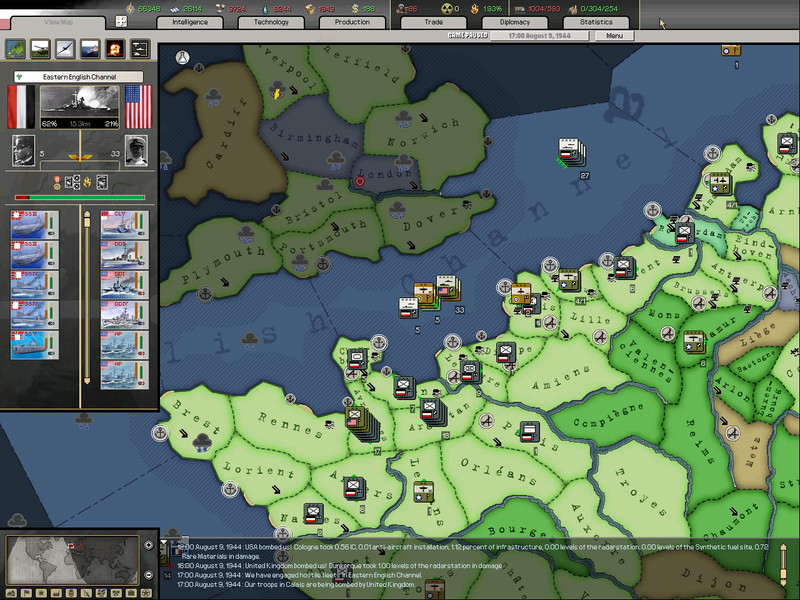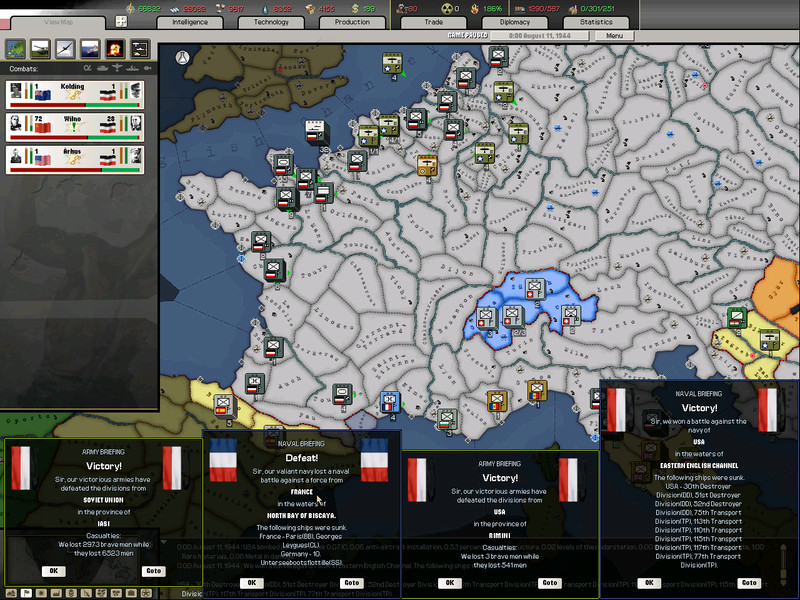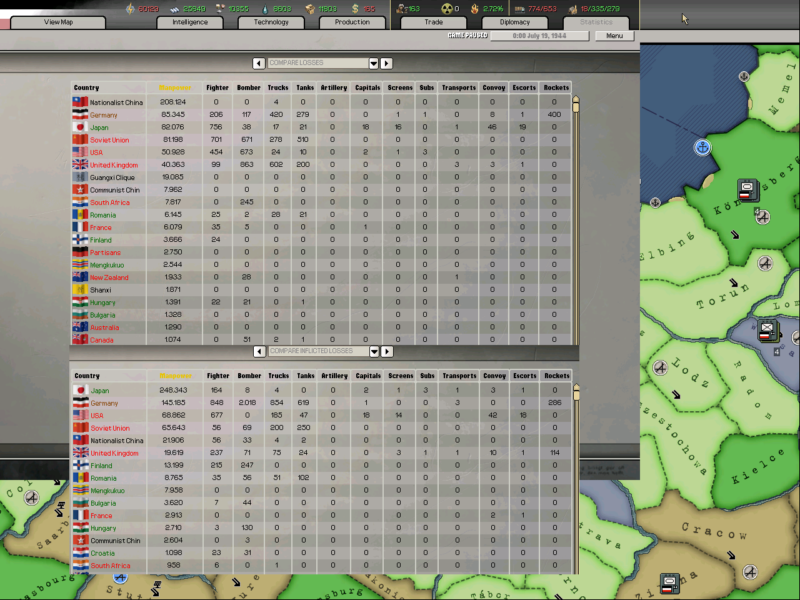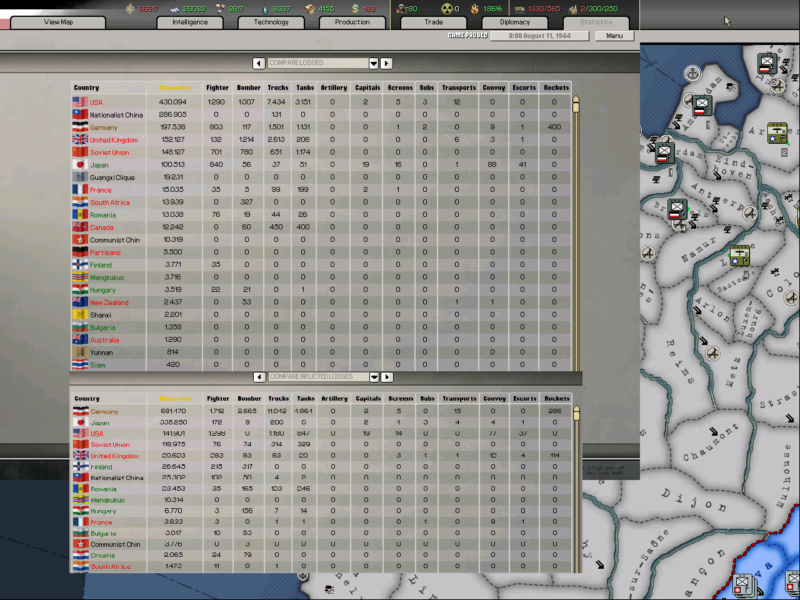Berlin, Germany
Chancellery, June 20, 1944
Martin Bormann paces at the head of the table as the leaders of the foundering Reich file in and take their seats. “Gentlemen, thank you for coming on short notice. It will not be a waste of your time today, as so many gatherings here have been in the recent past.
I tell you that the Fuehrer is incapacitated. Some of you may not be fully aware that the he has been alleviating the strain of guiding the Fatherland with increasing amounts of stimulants and painkillers and last night he lapsed into a coma from which he was barely awakened. I have drawn a medical team of professors from the university and placed him under their care. Their job is to wean him off the medications and attempt to restore him to health enough to serve as a figurehead, at least as far as radio addresses to the folk. Hitler’s days of effective leadership and vision, however, are clearly at an end, and proud Germany lies on the brink of utter ruin.
I freely admit that am unequal to the task of managing the challenges besetting us at this point. My purview is making others plans come to fruition. I know that our military leaders can do wonders, but there is so much to manage and all situations are critical. I can think of only one man who has demonstrated the ability to juggle a thousand details and has thrived under the most intense pressures that one could imagine. I have spoken to him at length and he is ready to serve if we will have him. I hereby nominate Albert Speer as Chancellor of the Reich, with that title held in confidence until we deem it ripe for announcement.”
The assembled ministers and chiefs of staff are momentarily nonplussed, then cries of “second” and “let us vote” ring out as individuals find their voice again. The motion carries quickly, with dissenting votes from Goring and Himmler, as may be expected. A stir of excitement passes through the group.
Herr Speer rises and takes a small bow, then moves to the head of the table, uncovering some charts and maps as he passes the easels they stand on. He begins: “I thank you for your faith in my abilities, but I am no miracle worker. Every citizen must join together and you men must do all the real work if we are to salvage our future. I am prepared to be merciless in this endeavor. Our allies we will hold dear, but the rest of the world has chosen sides against us, and it is my hope that they will rue their decisions.
Forgive me the reference to our Eastern foes, but the Fatherland and the Wehrmacht are like wounded bears at the moment. We are off balance and surrounded by foes, but still dangerous to any we catch in our grip. Now we must focus our resources and drive at one opponent after another. Only in this way do I see a way that we may succeed.
To begin with, some changes will be made, effective immediately. Air Marshal Goring! Thank you for your service. You are relieved of your command duties effective immediately. Please gather your materials and retire to your country home. Your insights on aircraft design and bombing strategy may lead us to call upon you in future for consultations. Martin, please bring in Air Marshal Milch and direct him to his seat. We need this man to lead the defense of our air space.
General Guderian. Your service cannot be more exemplary, and we desperately need the recruits you draw to our cause. Yet we must at this moment focus on winning the battles immediately before us. Please take the seat held for you there, with the chiefs of staff. General Jodl will assume the mantle of Chief of Staff, in order that our forces can recover their strength and outpace our opponents in the weeks ahead.
General Hoepner, you will assume the duties of the Chief of the Army, effective immediately. Your armored spearheads are Germany’s last bid for victory. Use them wisely.
General Himmler, at my direction all internal police forces will report to the Chief of the Army from this moment. I understand that he is in need of trained men at the front lines. You will remain here under house arrest until your replacement can be installed. Herr Goebbels must wait a bit until the some of these first three cabinet changes have been accepted by the populace, but you are on notice at this point.
Now, the situation, so that all leaders old and new can be fully aware of the scope of the threats to greater Germany. Here are our forces as of last night. The Wehrmacht seems a mighty instrument when seen on such a display. Well, it is not. There may be a half dozen divisions at full strength in the entire Heer, but the average is half to three quarter of their Table of Organization strength, and every force on land, air and sea is demoralized and drained by overuse.
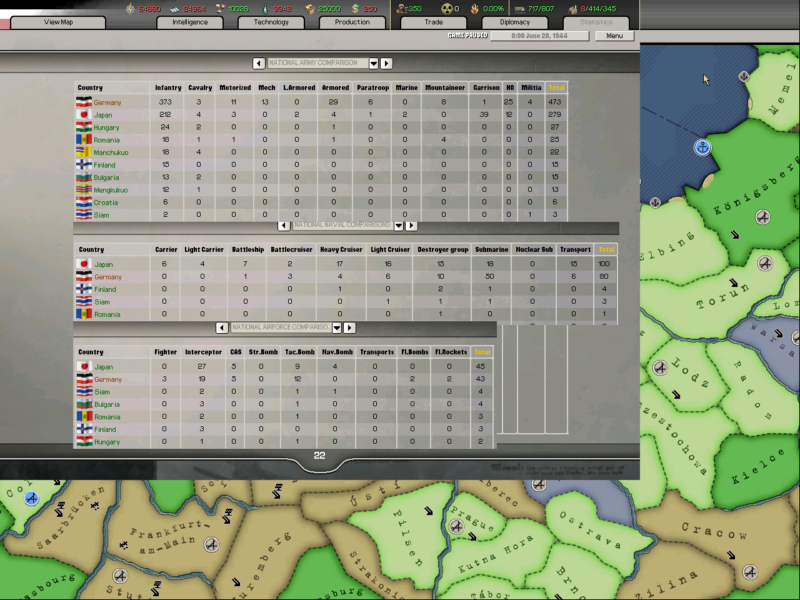
Our enemies will not allow us a breather. The only breaks that we get will have to be earned in blood. Even if we had all the time in the world, five years of constant warfare have left us with manpower reserves fit to replenish about 25% of our needs today. And there will be fresh battles on the morrow.
As of midnight tonight, numerous ships, U-boats, infantry divisions and headquarters formations will be disbanded, with their veteran troops spread to the remaining forces to make them more combat effective. The new force structure as of sunrise tomorrow is shown here.
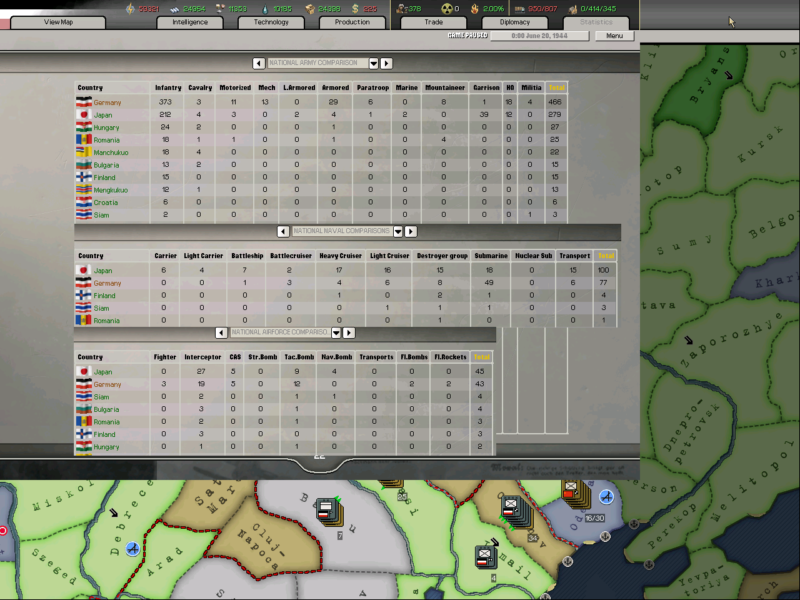
Next topic is production. We need everything, but we cannot have it, so priority is the watchword. With the regime change, the production plan is 100% reworked. I am saving the Allies some trouble by pre-sinking our aircraft carrier hull as well as those of the U-boats that are not of the highest model type. We will halt production on the remaining six lines and I will have further consultations with Admiral Donitz regarding those commitments. In addition all rocket production is completely abandoned. Even with rockets launching by the day the Reich is being overrun, so they are clearly not the weapon of our salvation.
We immediately begin with two production lines of self-propelled artillery, two lines of our feared 88 anti-tank brigades and two lines of escort fighters. We will not be able to trade lives with our foes, so our forces must be honed to a fine edge and armed with the best equipment possible. The only other project underway at this point is increasing the infrastructure of our capital, Berlin, to increase the support for all our troops, wherever they are deployed. We are devoting some production to repairs, some to supplies and some to gathering money for the materials that are in shortage. The greatest portion of our capacity will be allotted to training replacements for the tens of thousands who have fallen in battle to this point. In that regard I have today directed all training facilities to take the extra time and effort needed to make the replacements skilled soldiers and not mere draftees.
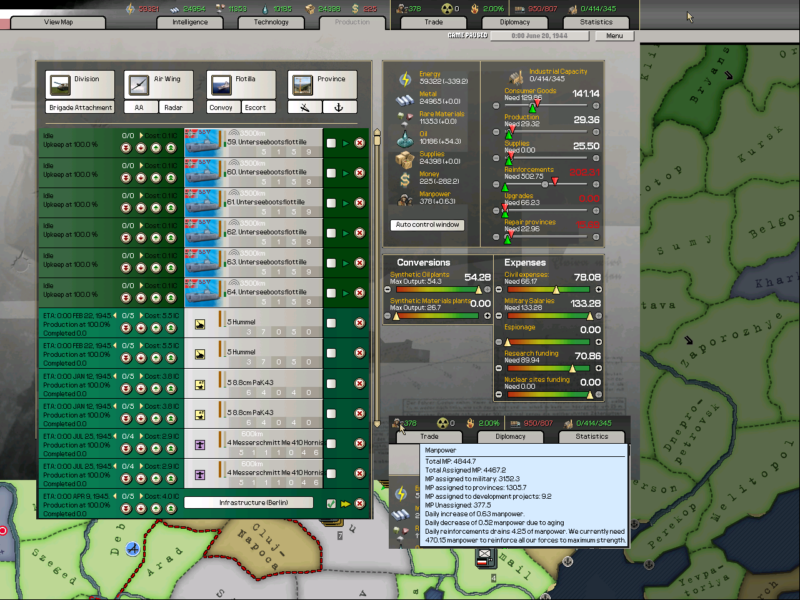
As far as research, we cannot afford research, but again, it is vital to our chances to win the technology race. I am placing nine teams on projects that have immediate impacts for the Reich. I hope it is the right decision.
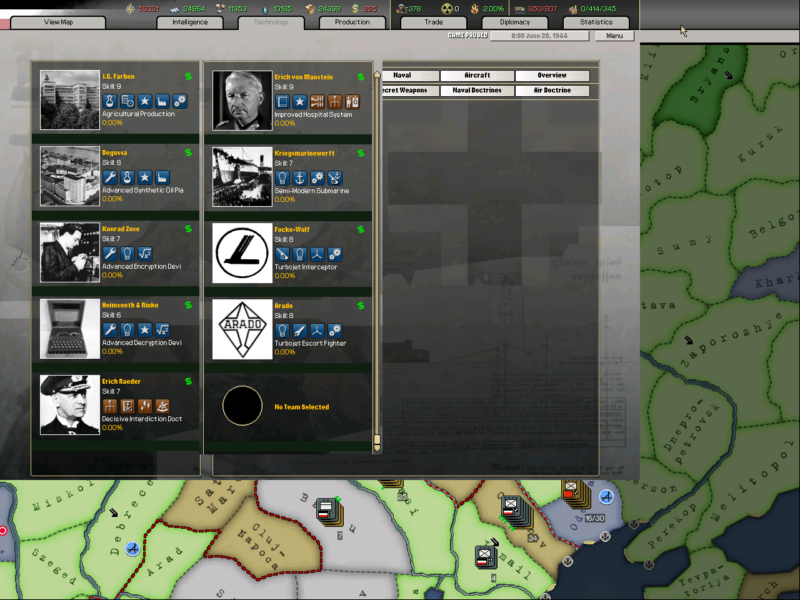
I will now yield the floor to the Foreign Minister.”
“Thank you, Albert,” begins von Ribbentrop, “and congratulations on your advancement. No one is more suited to this formidable task.
Gentlemen, the situation should be clear to all. Our allies are with us and the rest of the world is against us. Not to say that we do not have friends in Afghanistan, Bolivia and other places, but most of these friends are out of our reach and are only too content to stand on the sidelines of this war. I do not expect a single nation to join our cause now, and a few more defeats will motivate our current allies to slip away when they can. We need a victory or a series of them to restore faith in greater Germany.
I have ambassadors from every ally and some neutrals waiting in my offices at this moment. When I return there after this meeting I will ask that the armed forces of Finland, Bulgaria, Romania and Hungary be formally placed under the Wehrmacht chain of command, to ensure continuity of effort. I will make a quick trade with Japan for some rare materials and at the same time I will inform them that we wish no expeditionary forces from them or their satellites in the Far East.
I envision little activity in the diplomacy theater, aside from making the most advantageous trades possible for the needs of the Reich’s industrial base. With Herr Himmler being muzzled I have discussed with Albert the potential of changing the economy to more of a war footing but the disruption to society cannot yet be tolerated it seems. That is all, from my perspective.”
The Chancellor speaks, “I know that our force commandeers have longed to act without the heavy oversight forced on them. Now the opportunity is here, and they must rise to the challenge. Gentlemen, we will recess for two hours and then the chiefs of staff will discuss their overall plans and intentions.”
Chancellery, June 20, 1944
Martin Bormann paces at the head of the table as the leaders of the foundering Reich file in and take their seats. “Gentlemen, thank you for coming on short notice. It will not be a waste of your time today, as so many gatherings here have been in the recent past.
I tell you that the Fuehrer is incapacitated. Some of you may not be fully aware that the he has been alleviating the strain of guiding the Fatherland with increasing amounts of stimulants and painkillers and last night he lapsed into a coma from which he was barely awakened. I have drawn a medical team of professors from the university and placed him under their care. Their job is to wean him off the medications and attempt to restore him to health enough to serve as a figurehead, at least as far as radio addresses to the folk. Hitler’s days of effective leadership and vision, however, are clearly at an end, and proud Germany lies on the brink of utter ruin.
I freely admit that am unequal to the task of managing the challenges besetting us at this point. My purview is making others plans come to fruition. I know that our military leaders can do wonders, but there is so much to manage and all situations are critical. I can think of only one man who has demonstrated the ability to juggle a thousand details and has thrived under the most intense pressures that one could imagine. I have spoken to him at length and he is ready to serve if we will have him. I hereby nominate Albert Speer as Chancellor of the Reich, with that title held in confidence until we deem it ripe for announcement.”
The assembled ministers and chiefs of staff are momentarily nonplussed, then cries of “second” and “let us vote” ring out as individuals find their voice again. The motion carries quickly, with dissenting votes from Goring and Himmler, as may be expected. A stir of excitement passes through the group.
Herr Speer rises and takes a small bow, then moves to the head of the table, uncovering some charts and maps as he passes the easels they stand on. He begins: “I thank you for your faith in my abilities, but I am no miracle worker. Every citizen must join together and you men must do all the real work if we are to salvage our future. I am prepared to be merciless in this endeavor. Our allies we will hold dear, but the rest of the world has chosen sides against us, and it is my hope that they will rue their decisions.
Forgive me the reference to our Eastern foes, but the Fatherland and the Wehrmacht are like wounded bears at the moment. We are off balance and surrounded by foes, but still dangerous to any we catch in our grip. Now we must focus our resources and drive at one opponent after another. Only in this way do I see a way that we may succeed.
To begin with, some changes will be made, effective immediately. Air Marshal Goring! Thank you for your service. You are relieved of your command duties effective immediately. Please gather your materials and retire to your country home. Your insights on aircraft design and bombing strategy may lead us to call upon you in future for consultations. Martin, please bring in Air Marshal Milch and direct him to his seat. We need this man to lead the defense of our air space.
General Guderian. Your service cannot be more exemplary, and we desperately need the recruits you draw to our cause. Yet we must at this moment focus on winning the battles immediately before us. Please take the seat held for you there, with the chiefs of staff. General Jodl will assume the mantle of Chief of Staff, in order that our forces can recover their strength and outpace our opponents in the weeks ahead.
General Hoepner, you will assume the duties of the Chief of the Army, effective immediately. Your armored spearheads are Germany’s last bid for victory. Use them wisely.
General Himmler, at my direction all internal police forces will report to the Chief of the Army from this moment. I understand that he is in need of trained men at the front lines. You will remain here under house arrest until your replacement can be installed. Herr Goebbels must wait a bit until the some of these first three cabinet changes have been accepted by the populace, but you are on notice at this point.
Now, the situation, so that all leaders old and new can be fully aware of the scope of the threats to greater Germany. Here are our forces as of last night. The Wehrmacht seems a mighty instrument when seen on such a display. Well, it is not. There may be a half dozen divisions at full strength in the entire Heer, but the average is half to three quarter of their Table of Organization strength, and every force on land, air and sea is demoralized and drained by overuse.

Our enemies will not allow us a breather. The only breaks that we get will have to be earned in blood. Even if we had all the time in the world, five years of constant warfare have left us with manpower reserves fit to replenish about 25% of our needs today. And there will be fresh battles on the morrow.
As of midnight tonight, numerous ships, U-boats, infantry divisions and headquarters formations will be disbanded, with their veteran troops spread to the remaining forces to make them more combat effective. The new force structure as of sunrise tomorrow is shown here.

Next topic is production. We need everything, but we cannot have it, so priority is the watchword. With the regime change, the production plan is 100% reworked. I am saving the Allies some trouble by pre-sinking our aircraft carrier hull as well as those of the U-boats that are not of the highest model type. We will halt production on the remaining six lines and I will have further consultations with Admiral Donitz regarding those commitments. In addition all rocket production is completely abandoned. Even with rockets launching by the day the Reich is being overrun, so they are clearly not the weapon of our salvation.
We immediately begin with two production lines of self-propelled artillery, two lines of our feared 88 anti-tank brigades and two lines of escort fighters. We will not be able to trade lives with our foes, so our forces must be honed to a fine edge and armed with the best equipment possible. The only other project underway at this point is increasing the infrastructure of our capital, Berlin, to increase the support for all our troops, wherever they are deployed. We are devoting some production to repairs, some to supplies and some to gathering money for the materials that are in shortage. The greatest portion of our capacity will be allotted to training replacements for the tens of thousands who have fallen in battle to this point. In that regard I have today directed all training facilities to take the extra time and effort needed to make the replacements skilled soldiers and not mere draftees.

As far as research, we cannot afford research, but again, it is vital to our chances to win the technology race. I am placing nine teams on projects that have immediate impacts for the Reich. I hope it is the right decision.

I will now yield the floor to the Foreign Minister.”
“Thank you, Albert,” begins von Ribbentrop, “and congratulations on your advancement. No one is more suited to this formidable task.
Gentlemen, the situation should be clear to all. Our allies are with us and the rest of the world is against us. Not to say that we do not have friends in Afghanistan, Bolivia and other places, but most of these friends are out of our reach and are only too content to stand on the sidelines of this war. I do not expect a single nation to join our cause now, and a few more defeats will motivate our current allies to slip away when they can. We need a victory or a series of them to restore faith in greater Germany.
I have ambassadors from every ally and some neutrals waiting in my offices at this moment. When I return there after this meeting I will ask that the armed forces of Finland, Bulgaria, Romania and Hungary be formally placed under the Wehrmacht chain of command, to ensure continuity of effort. I will make a quick trade with Japan for some rare materials and at the same time I will inform them that we wish no expeditionary forces from them or their satellites in the Far East.
I envision little activity in the diplomacy theater, aside from making the most advantageous trades possible for the needs of the Reich’s industrial base. With Herr Himmler being muzzled I have discussed with Albert the potential of changing the economy to more of a war footing but the disruption to society cannot yet be tolerated it seems. That is all, from my perspective.”
The Chancellor speaks, “I know that our force commandeers have longed to act without the heavy oversight forced on them. Now the opportunity is here, and they must rise to the challenge. Gentlemen, we will recess for two hours and then the chiefs of staff will discuss their overall plans and intentions.”


